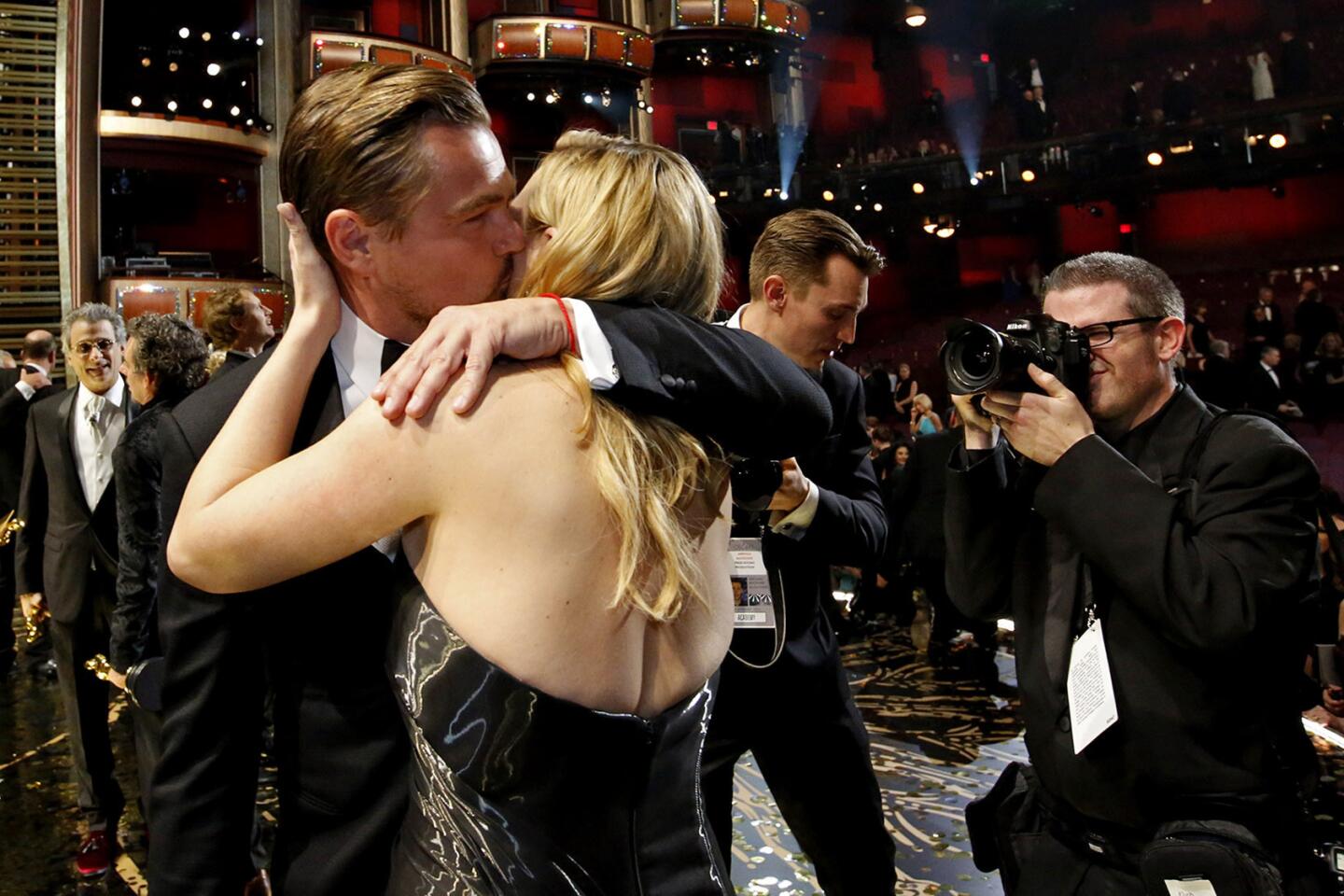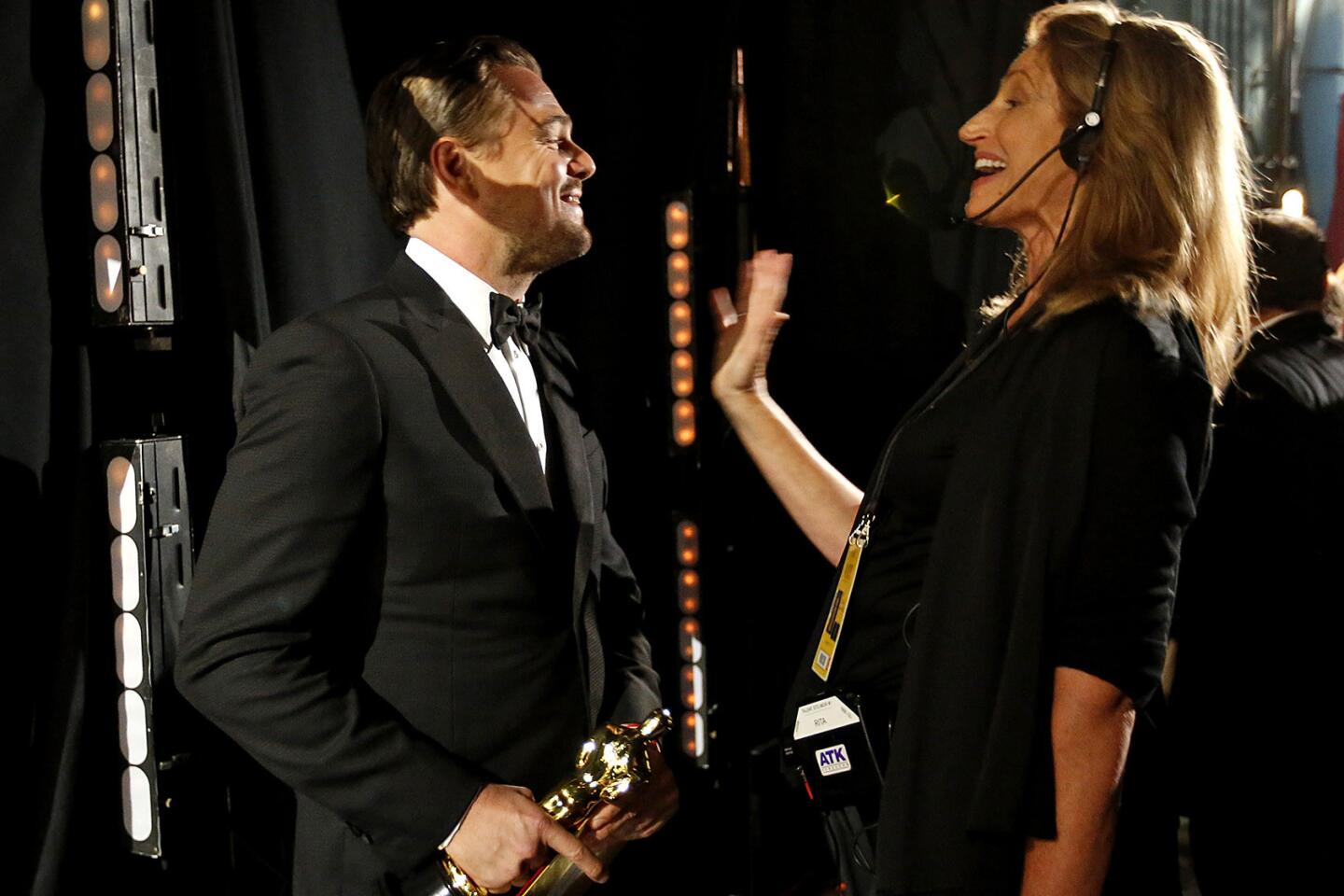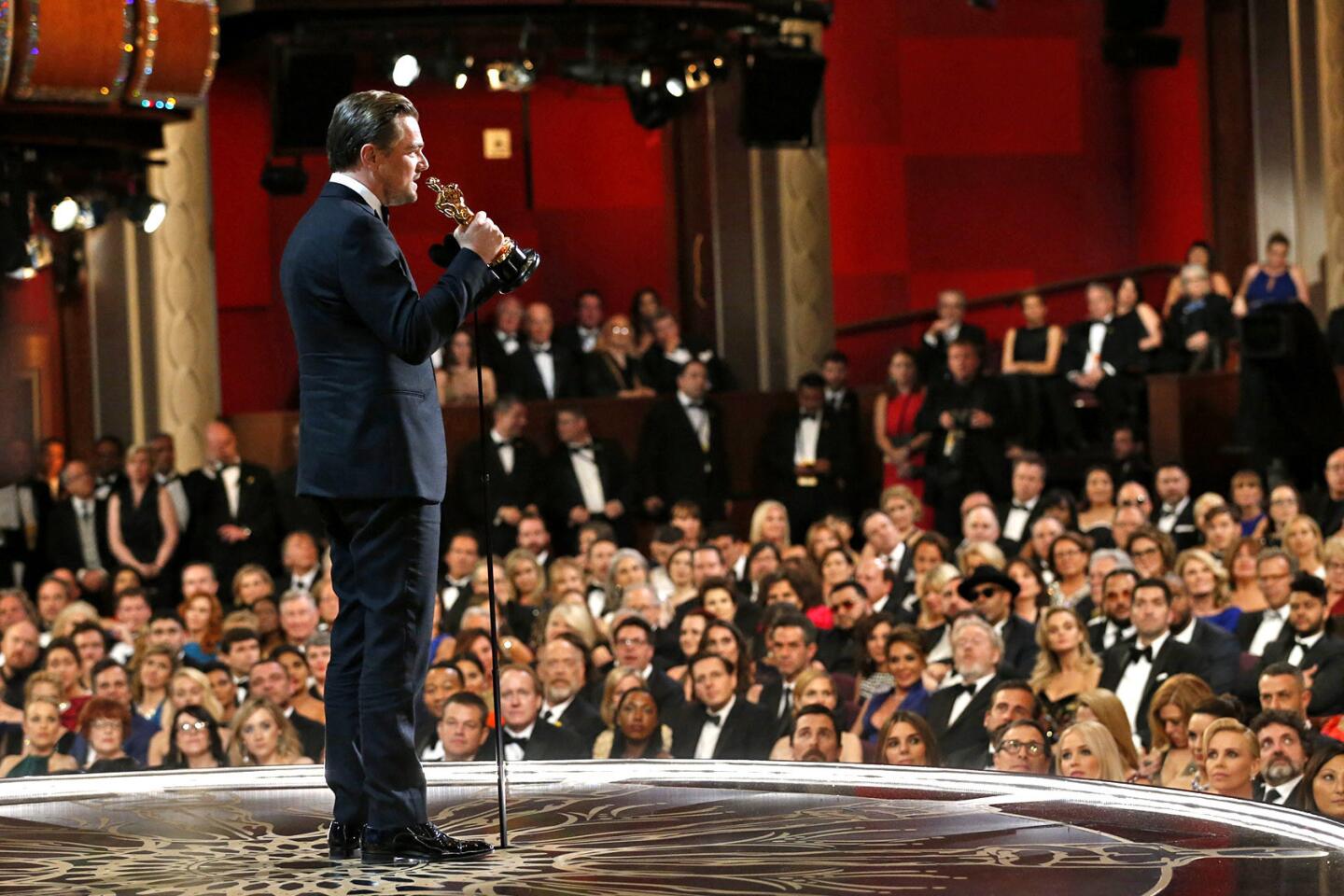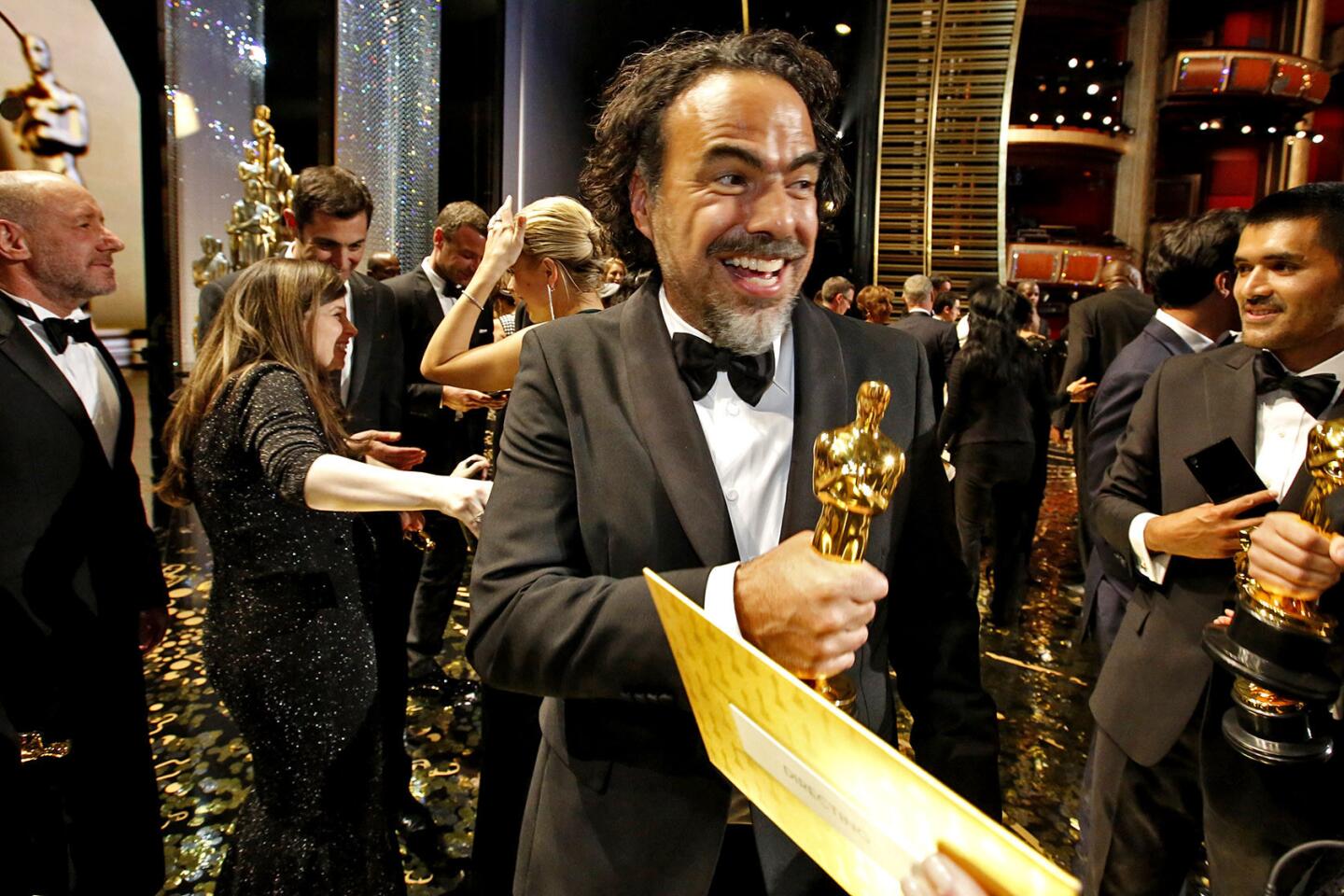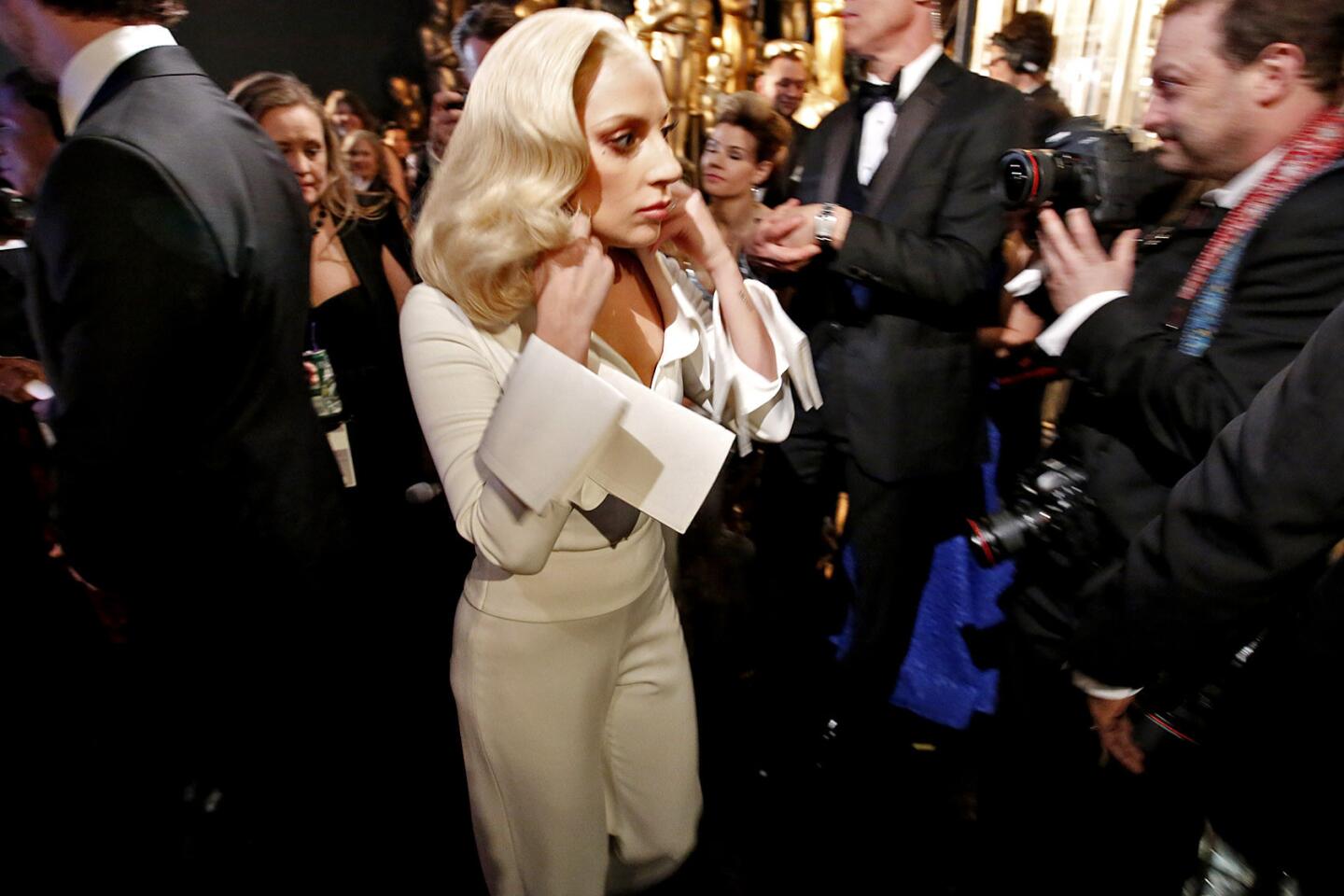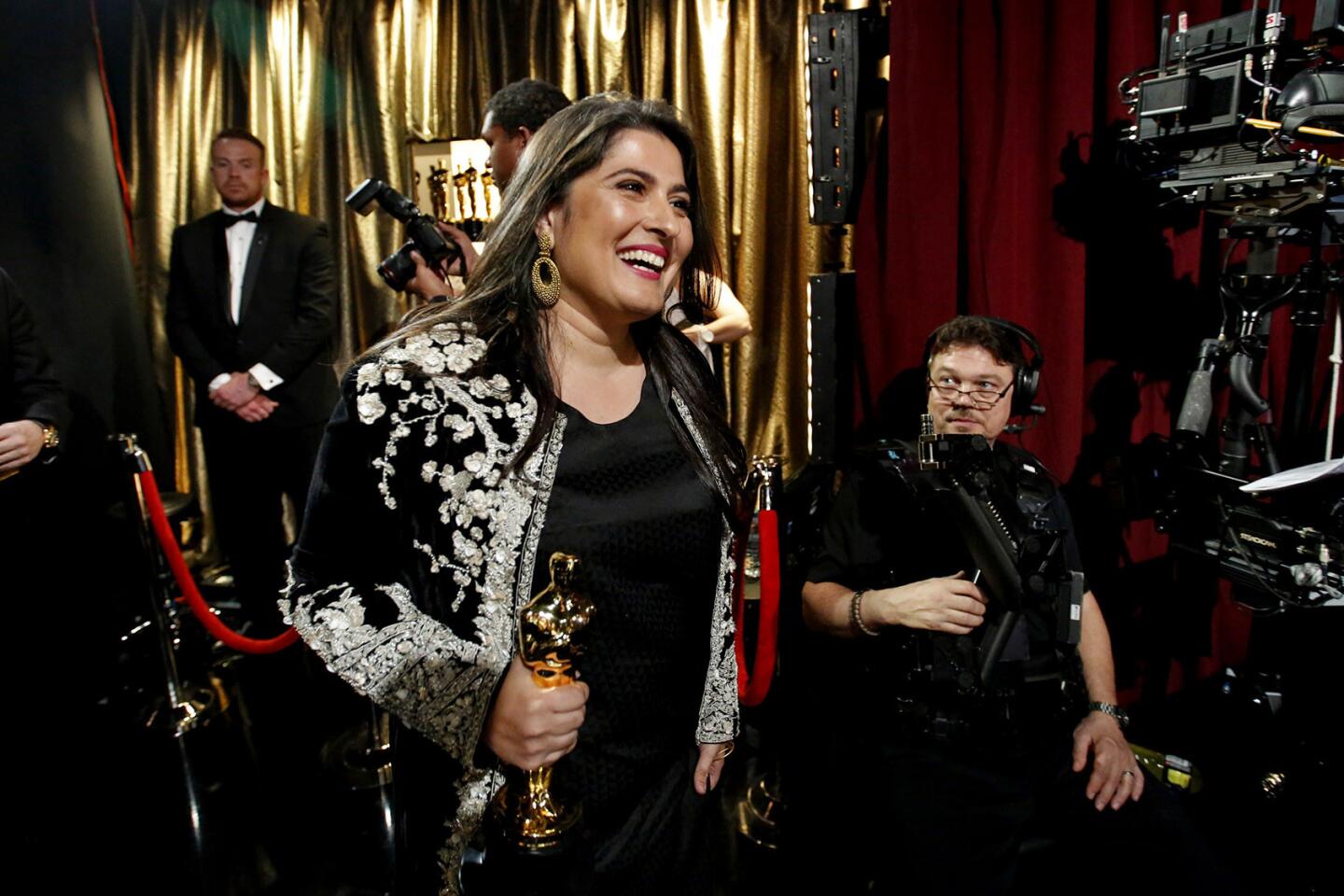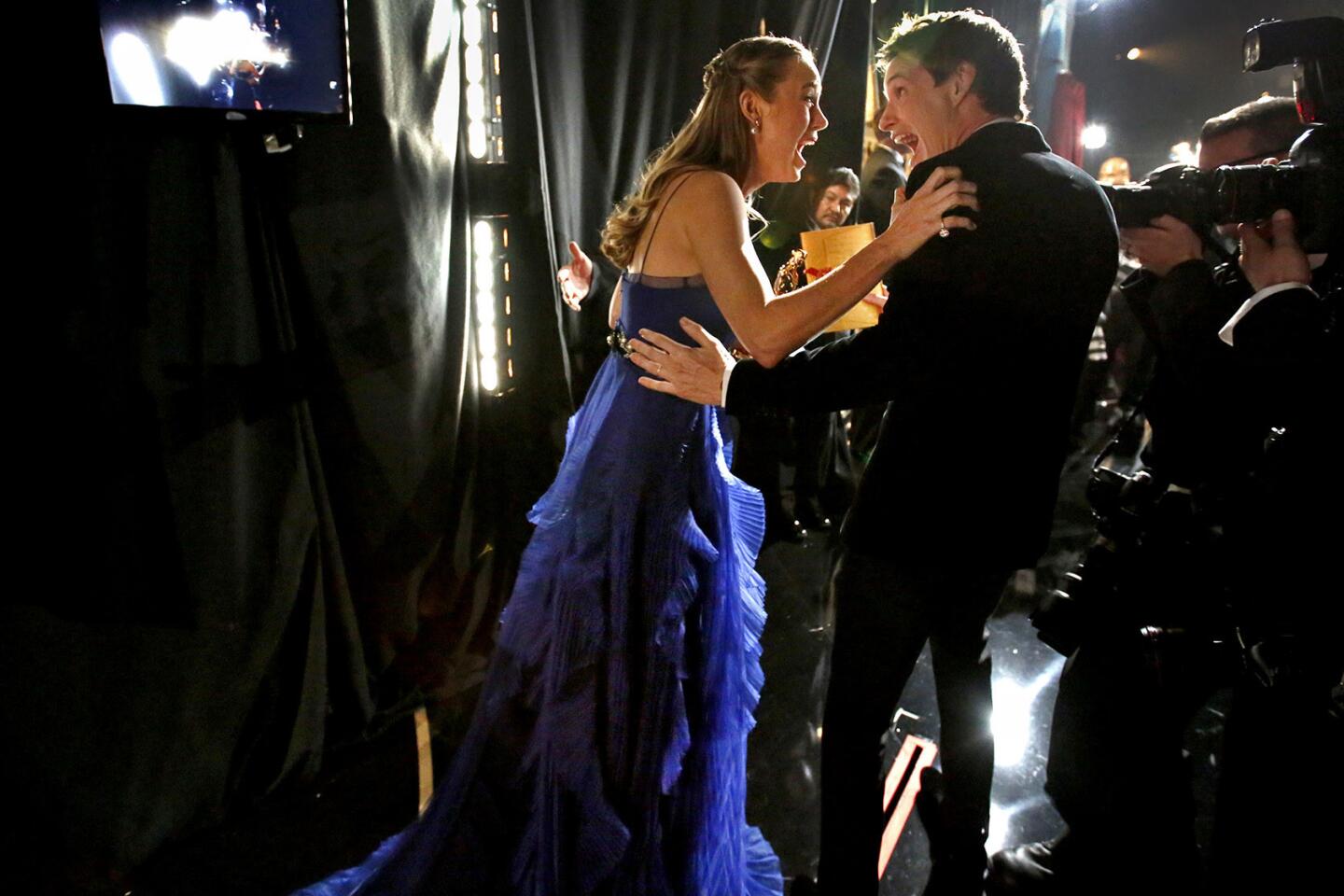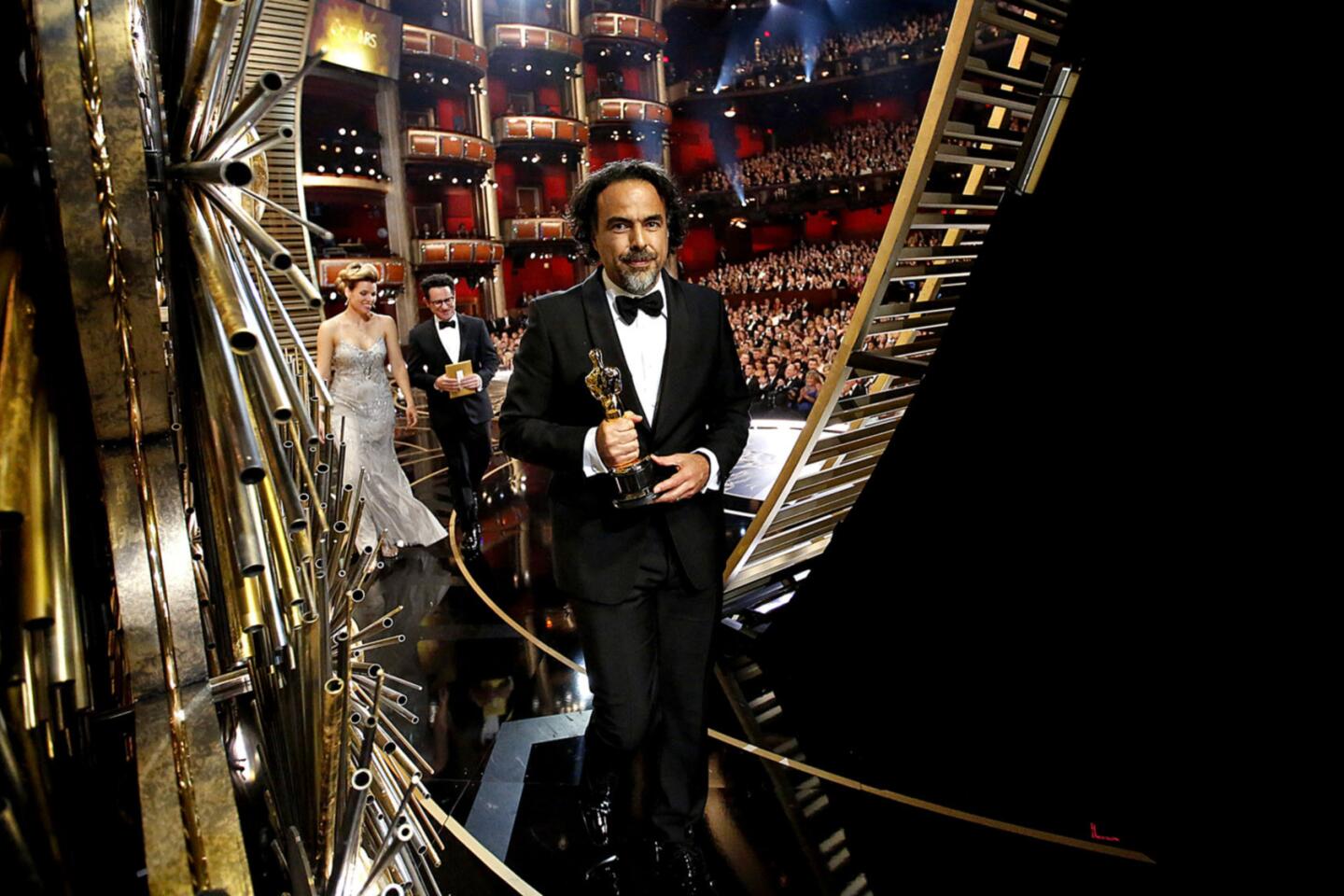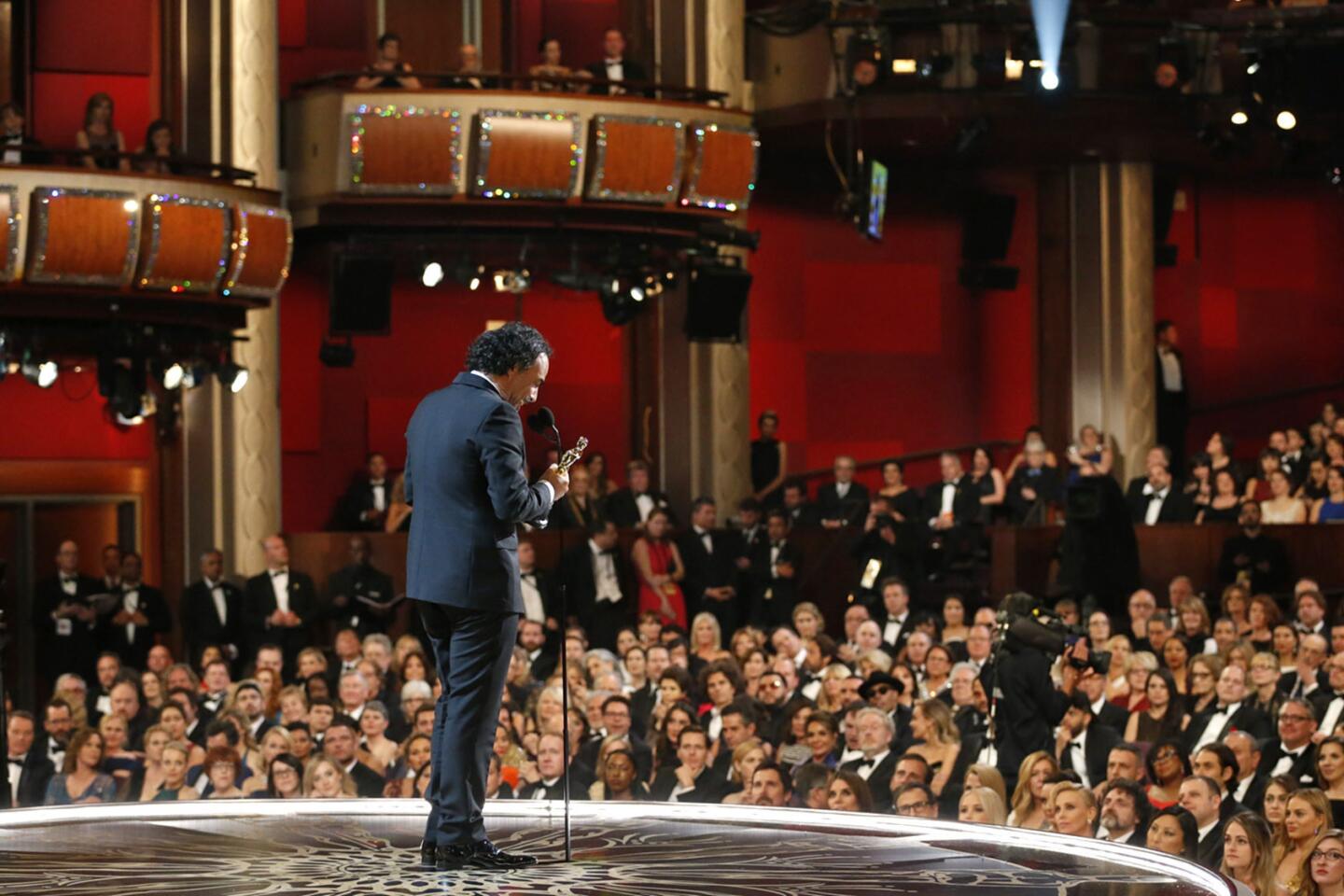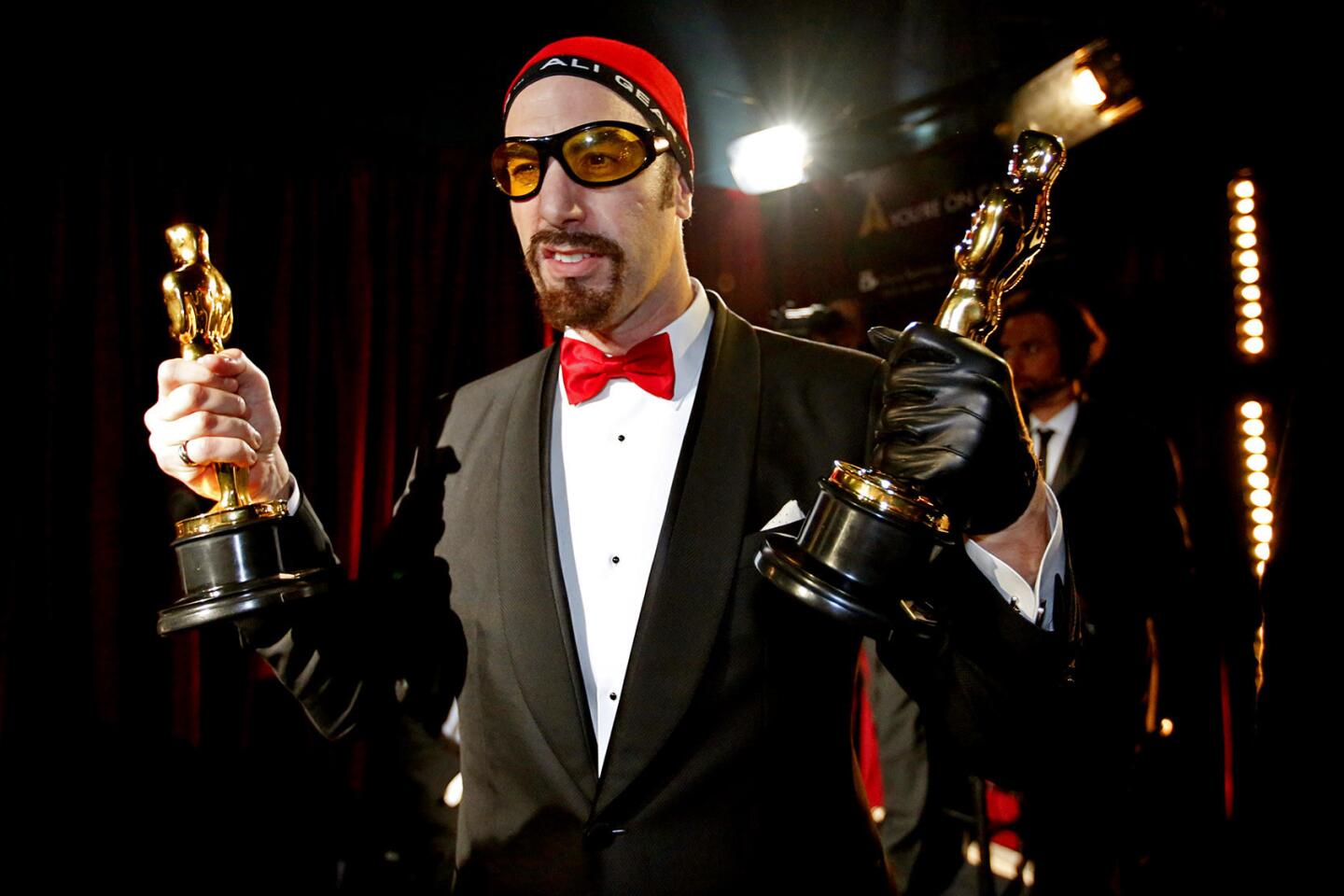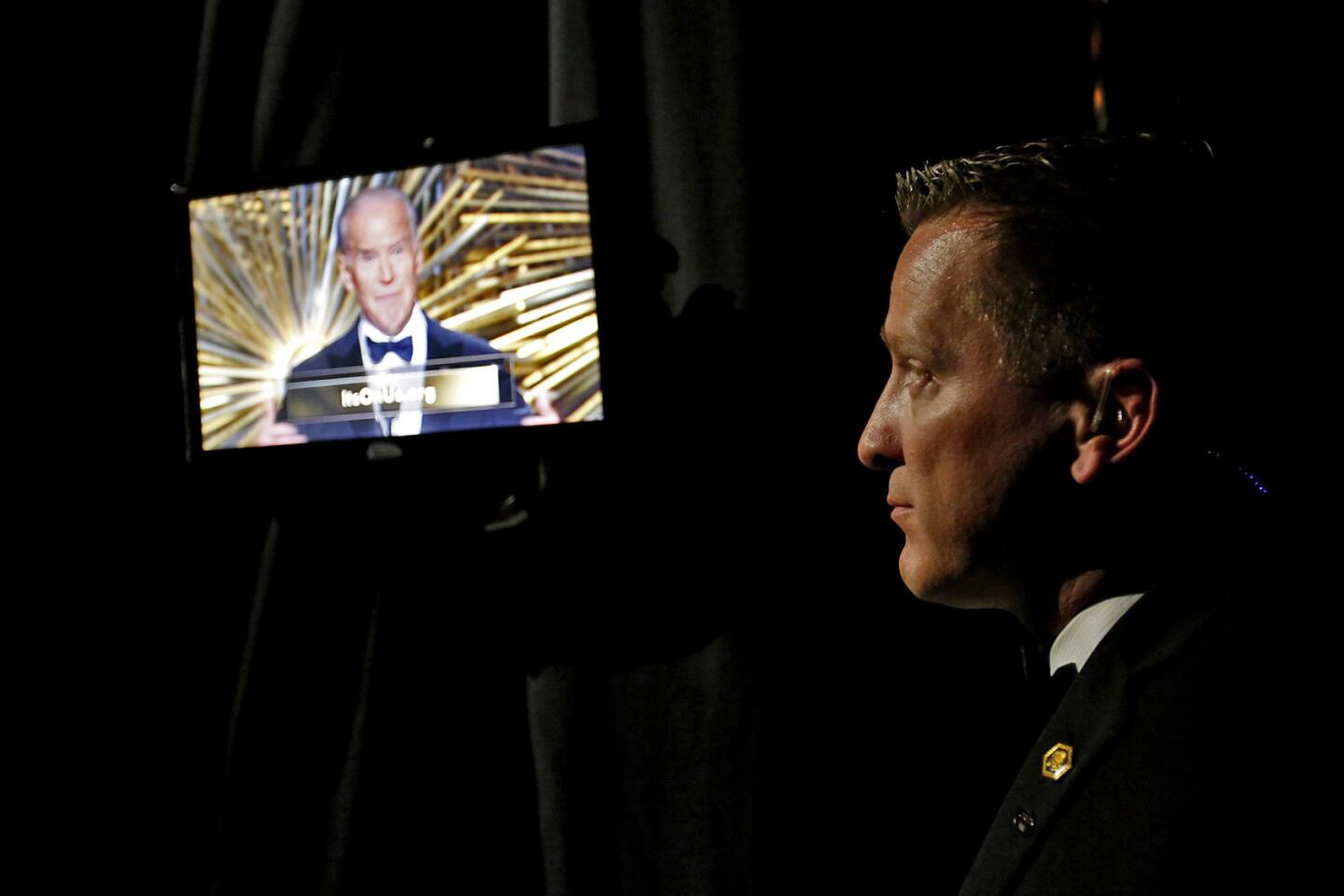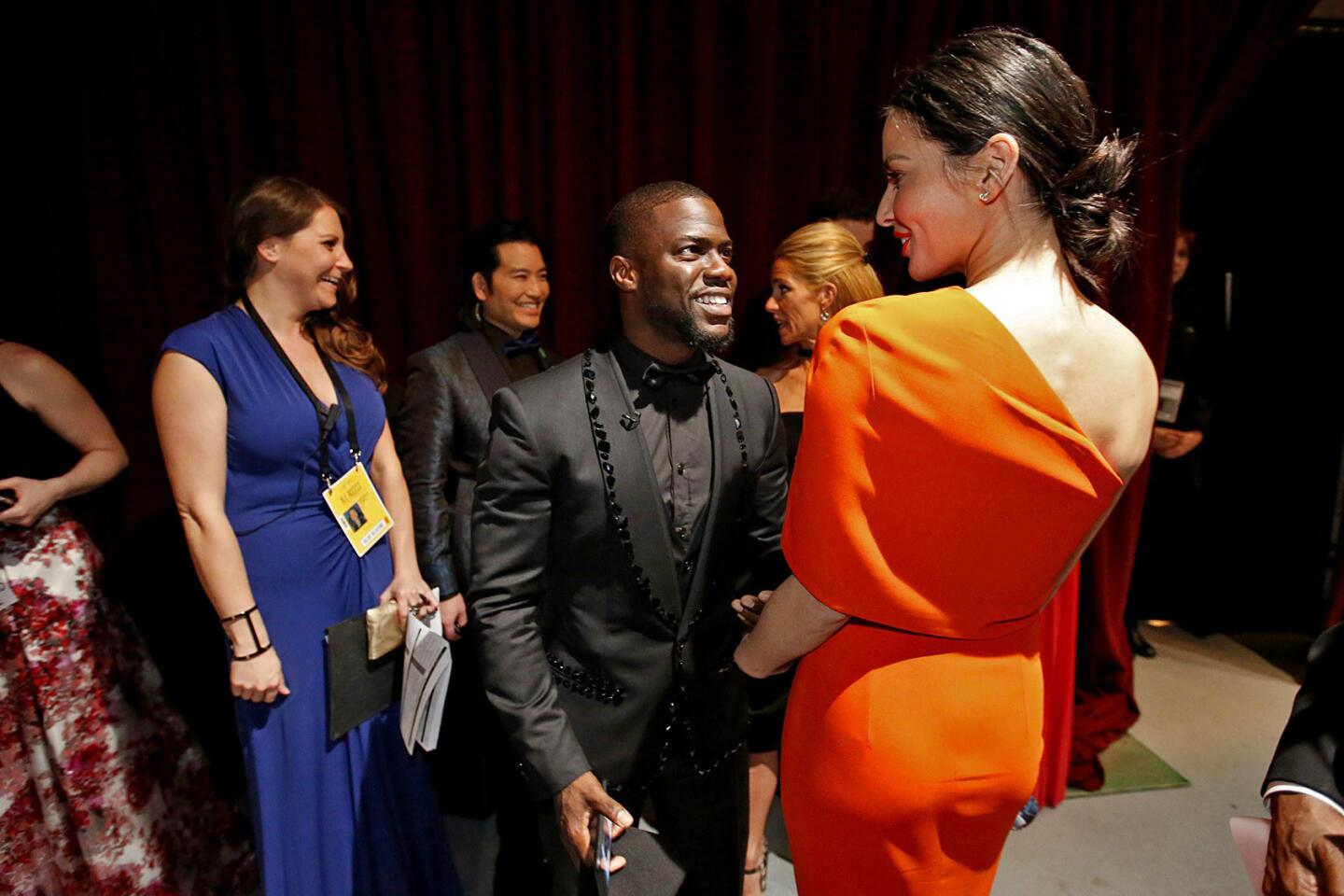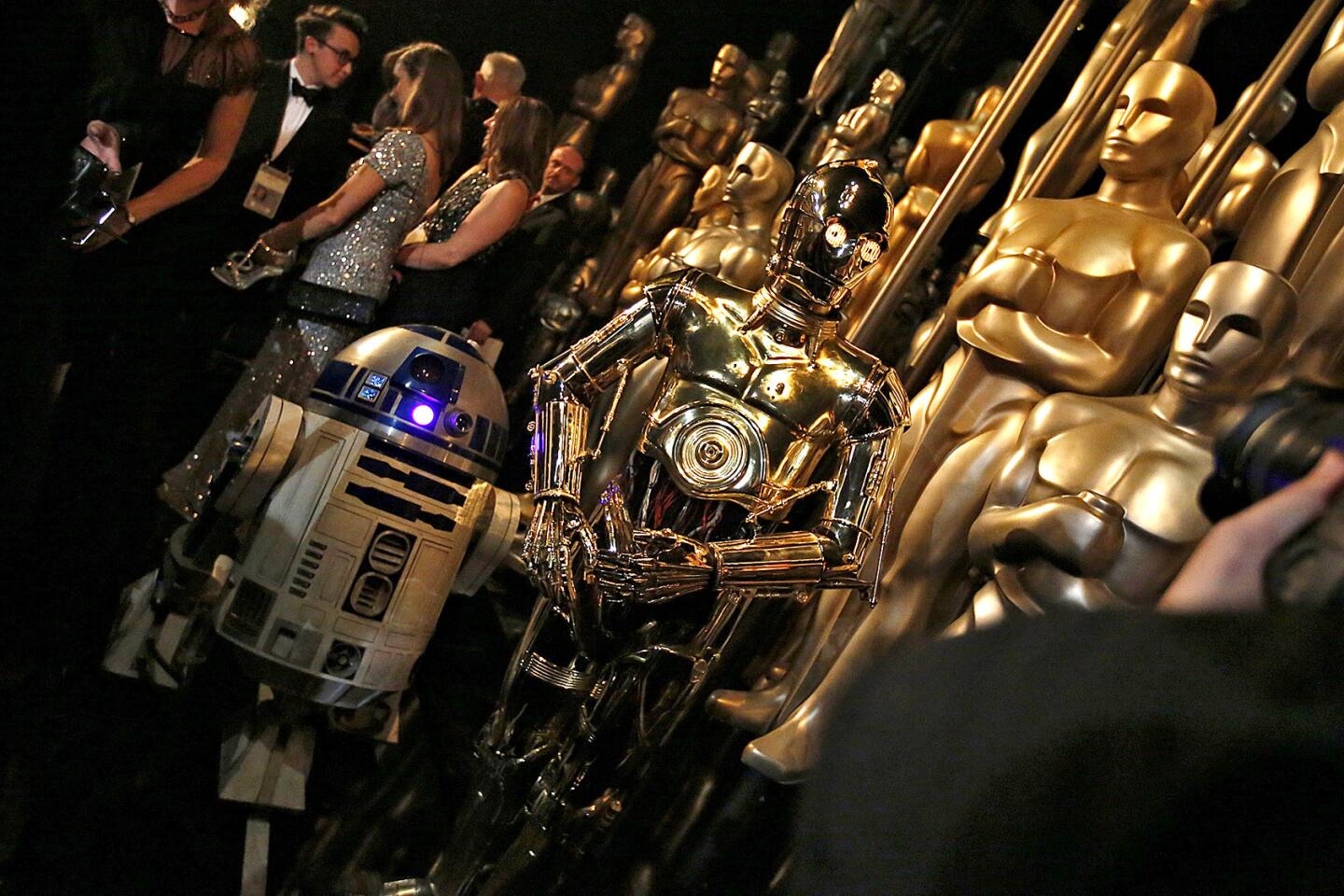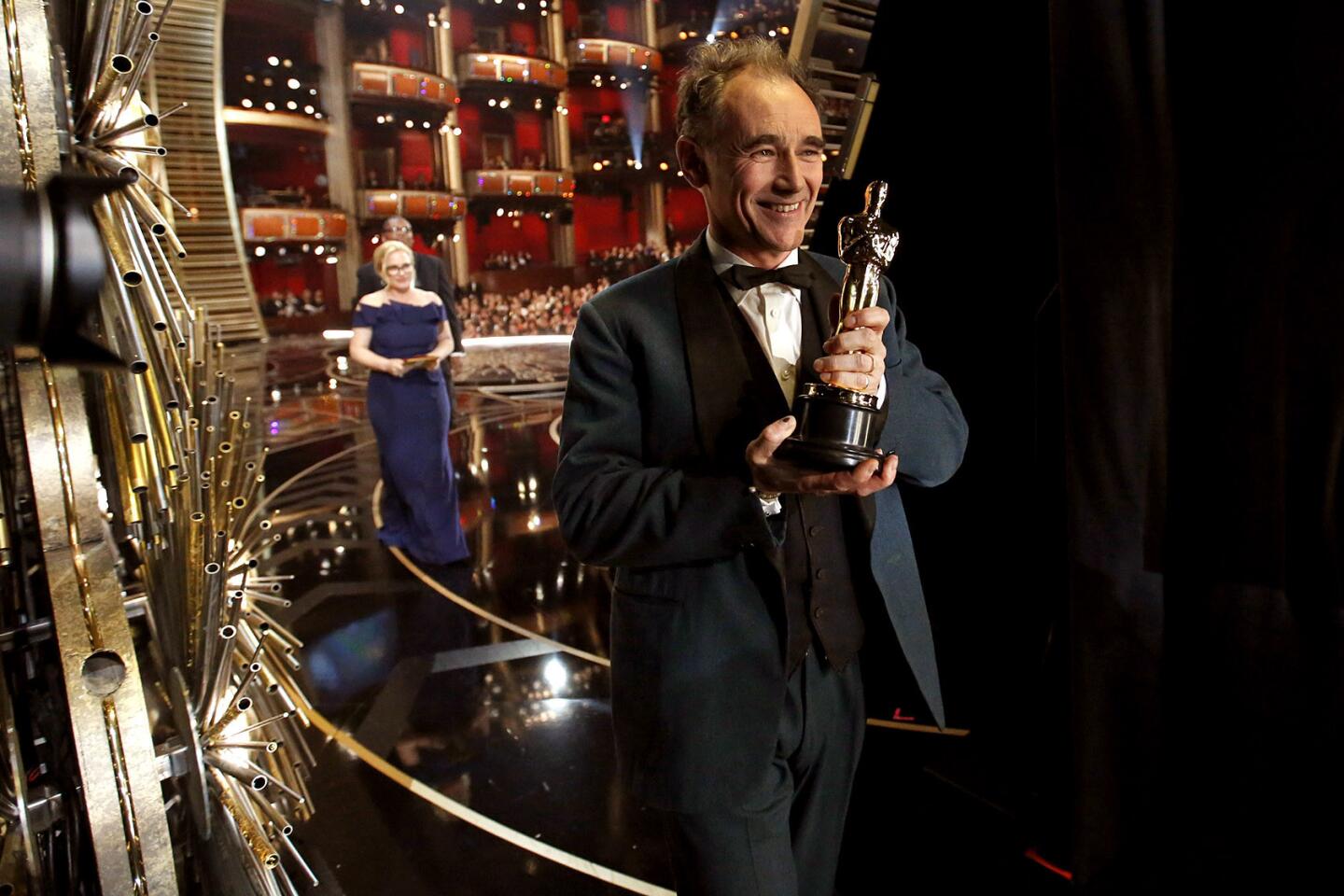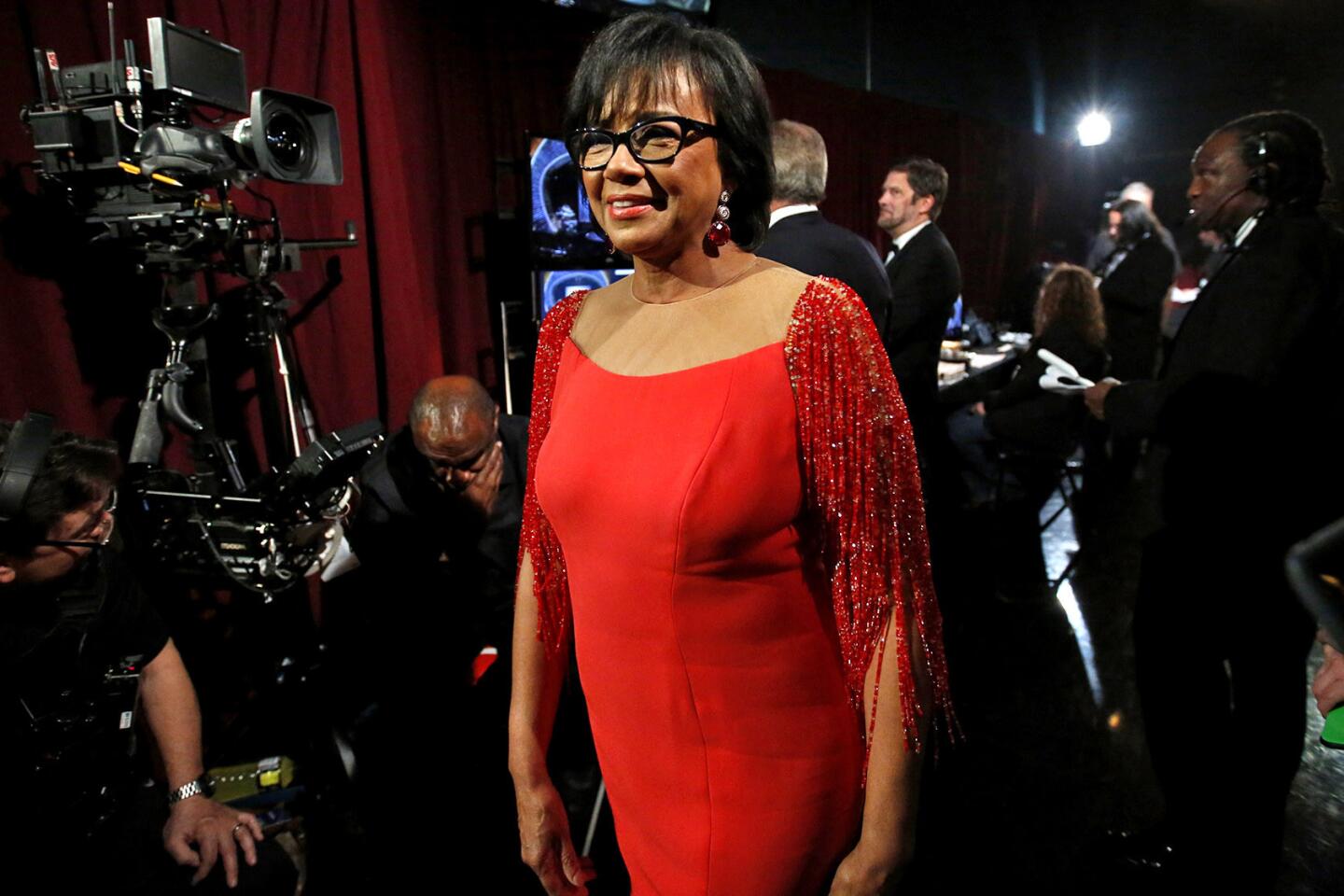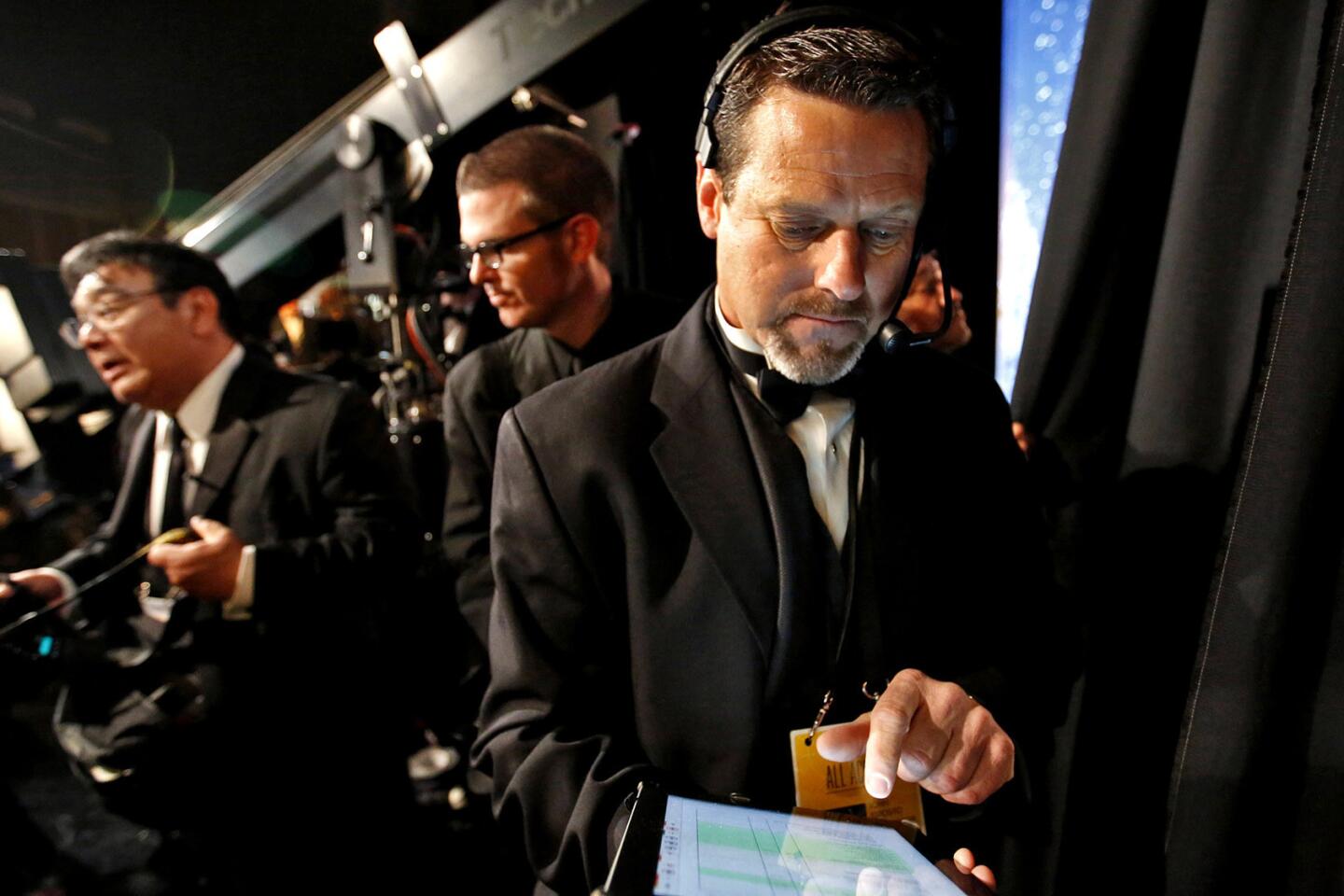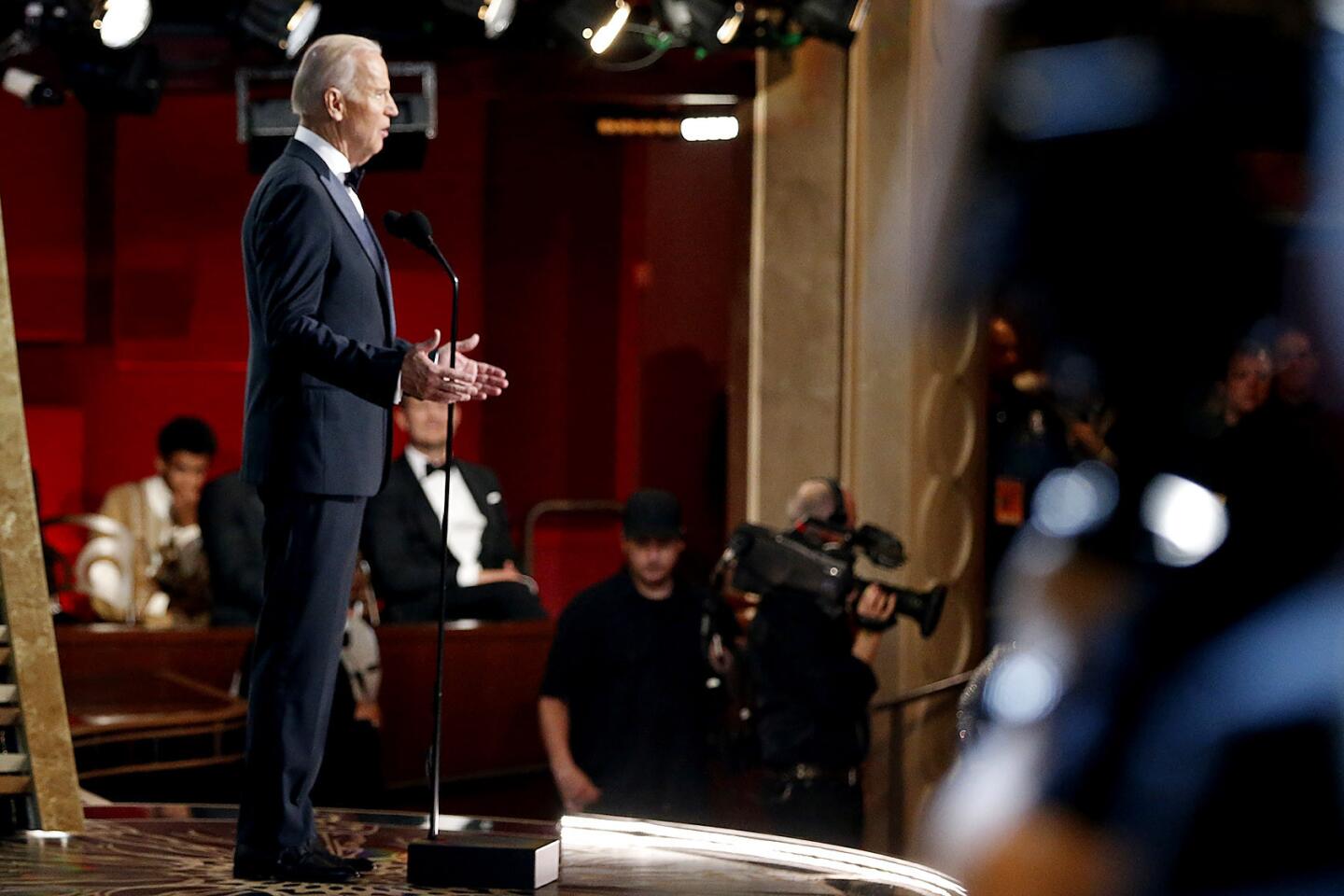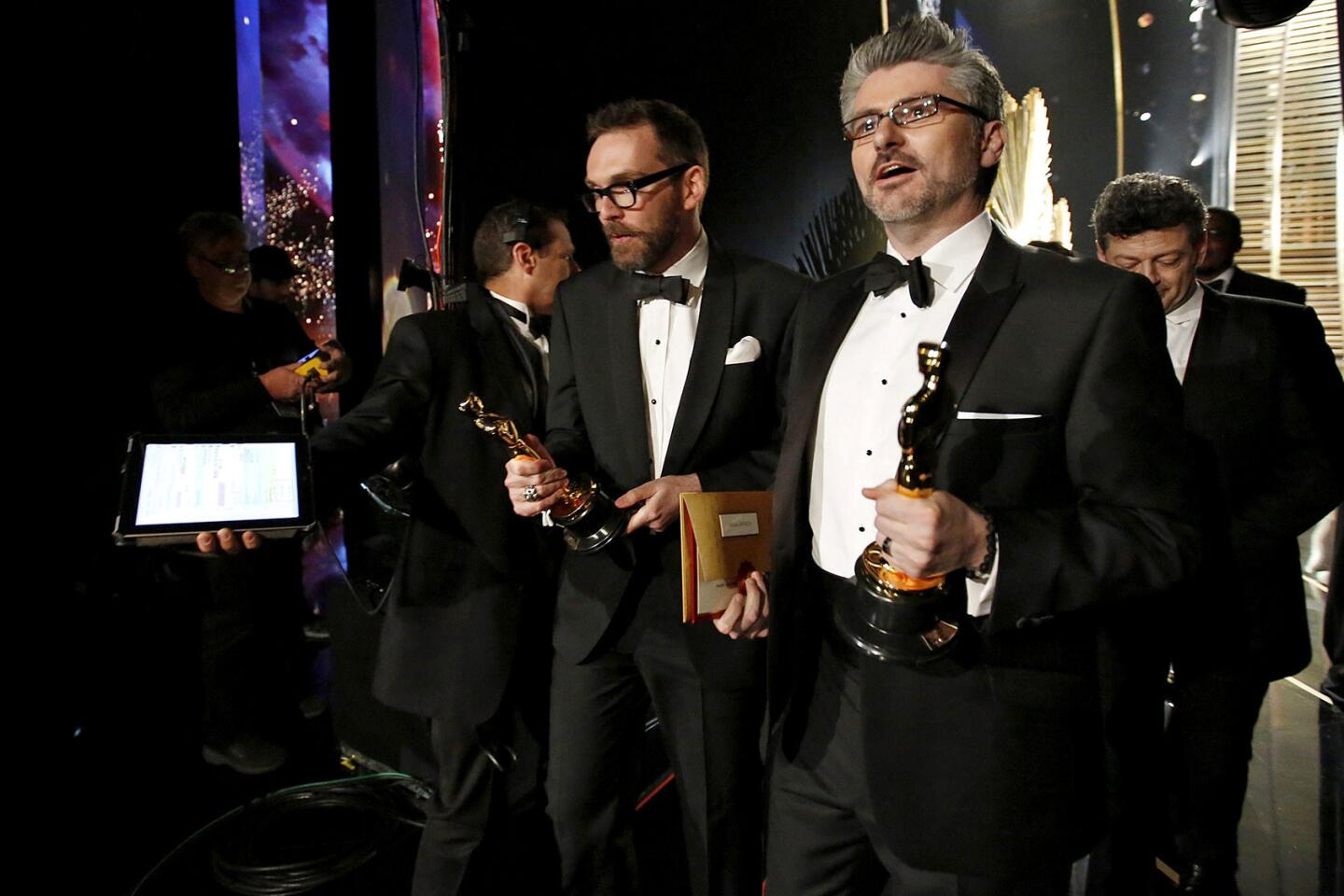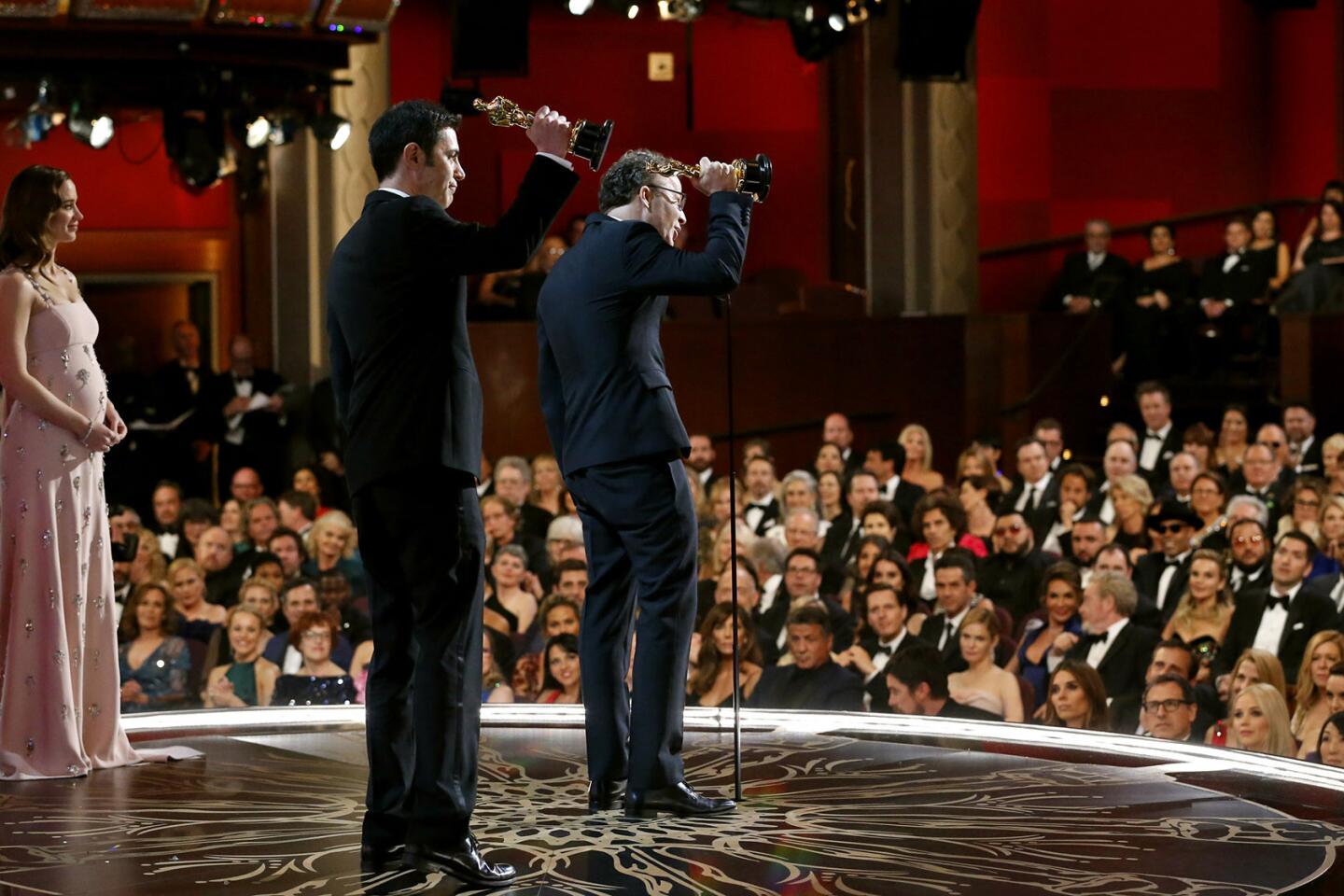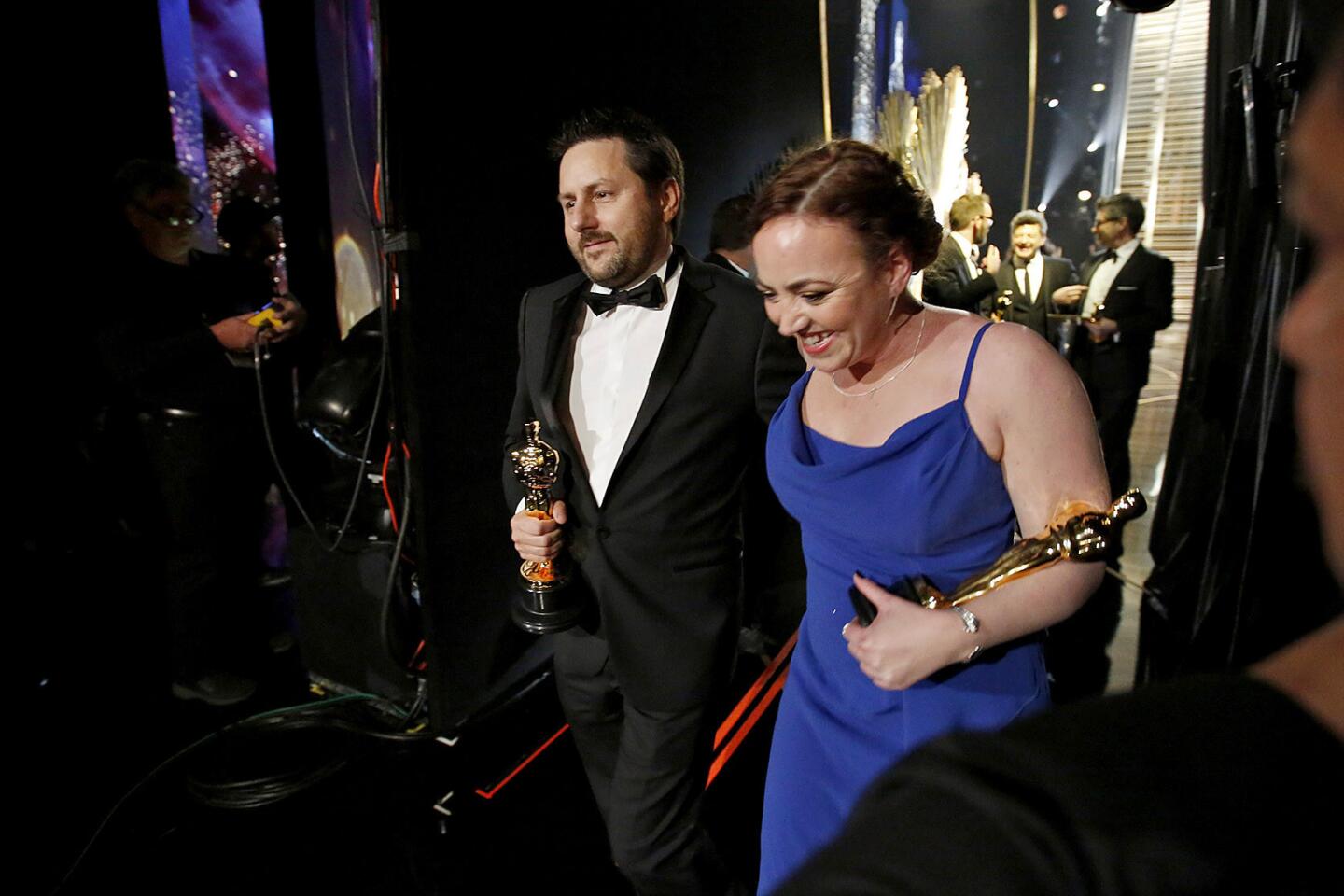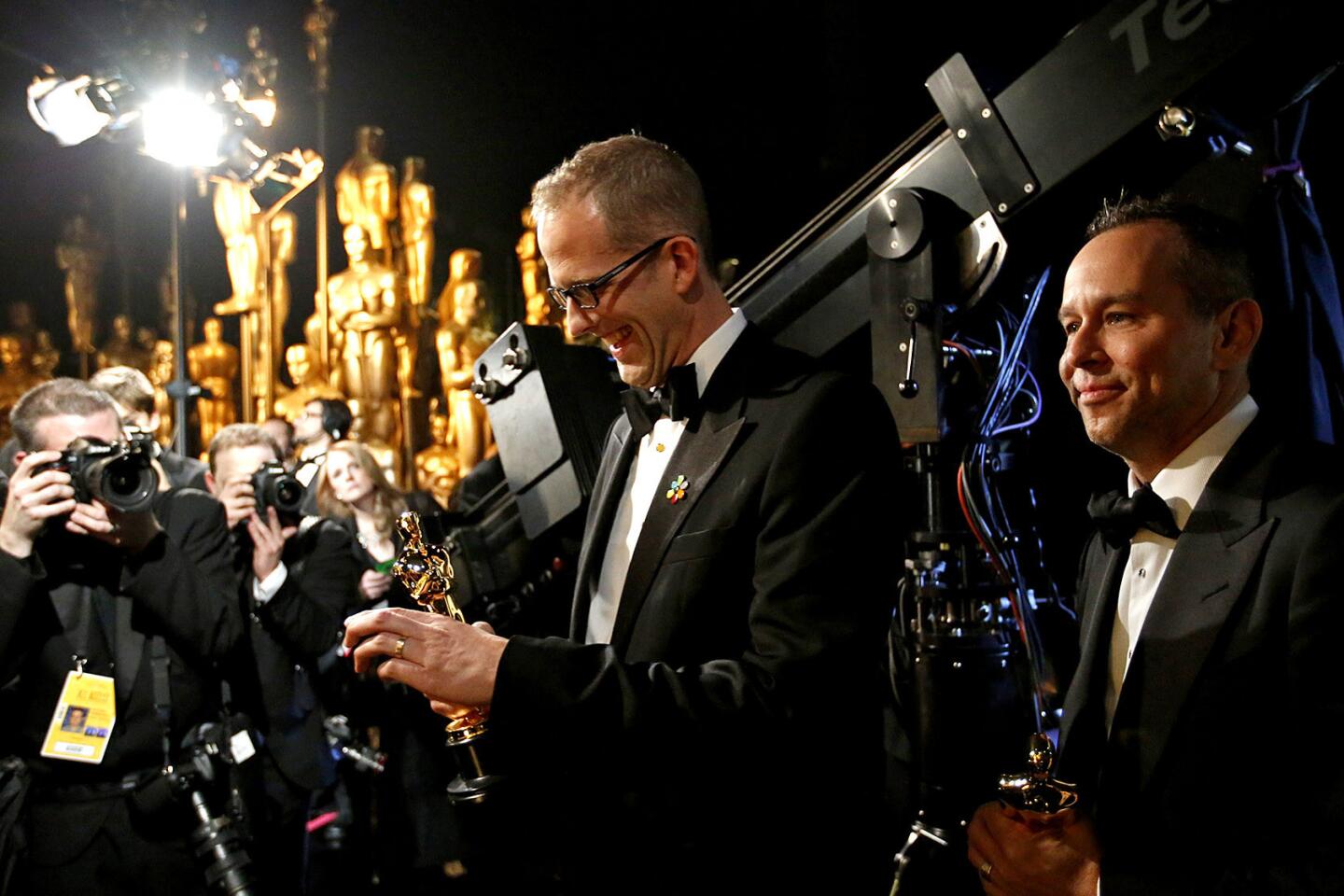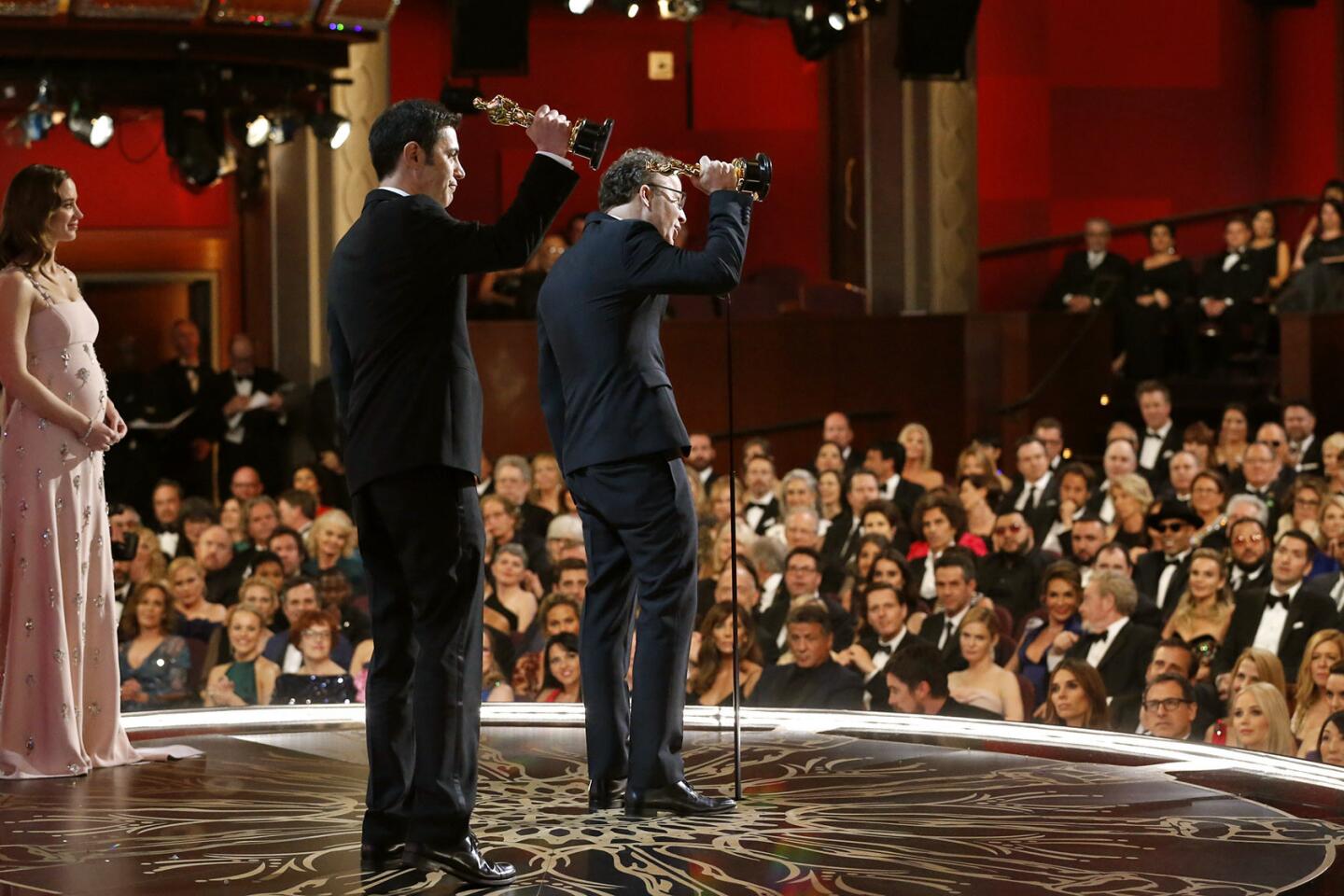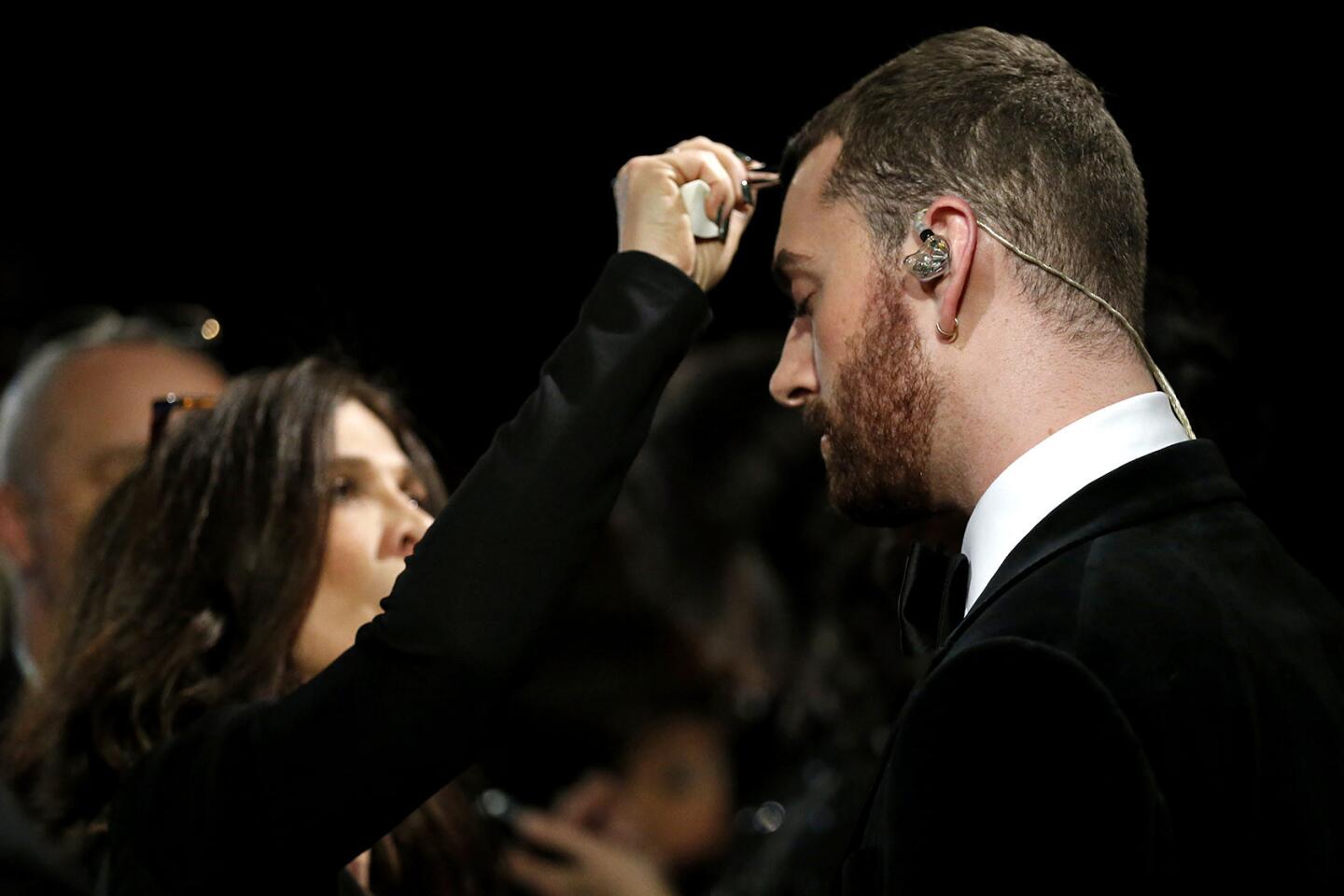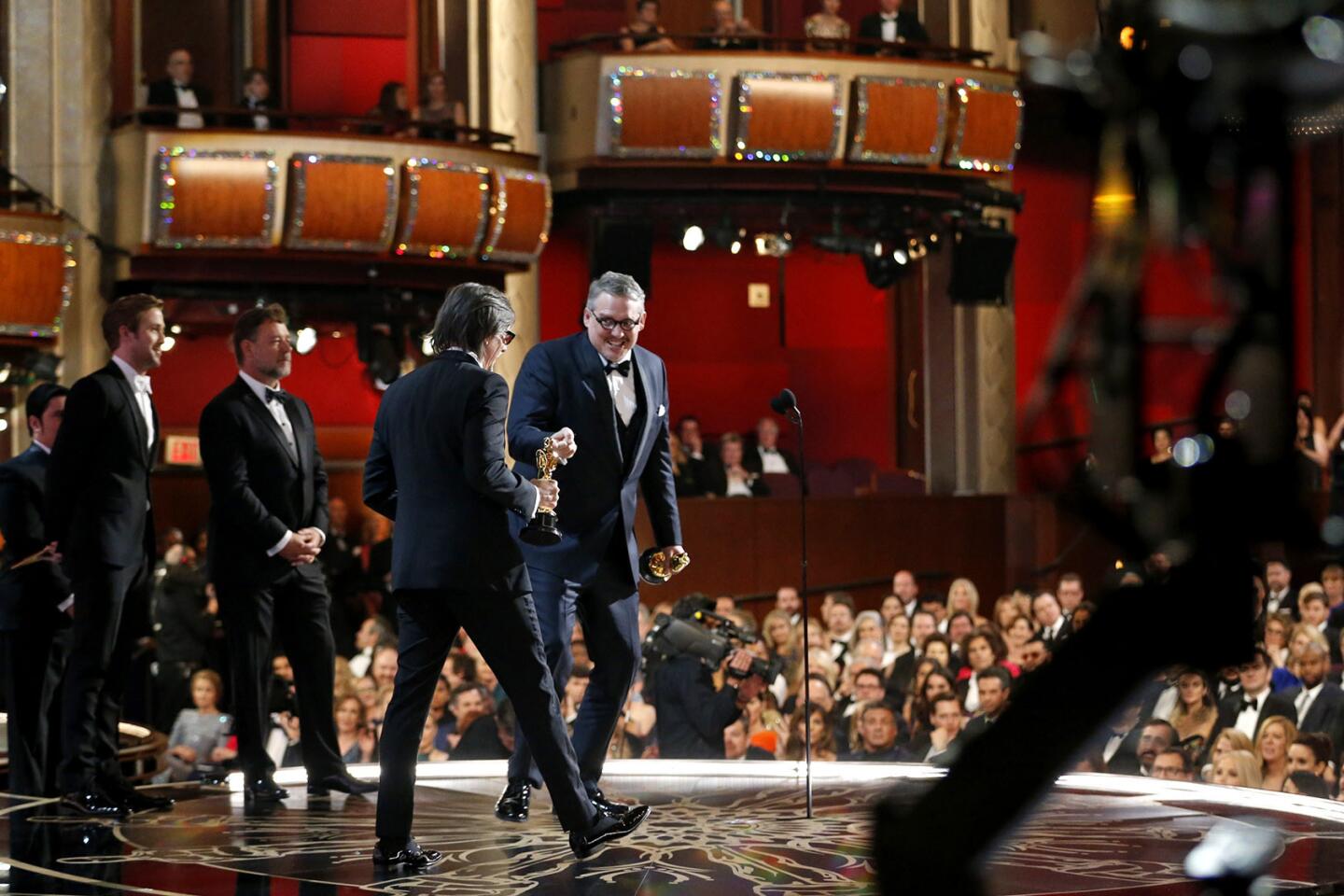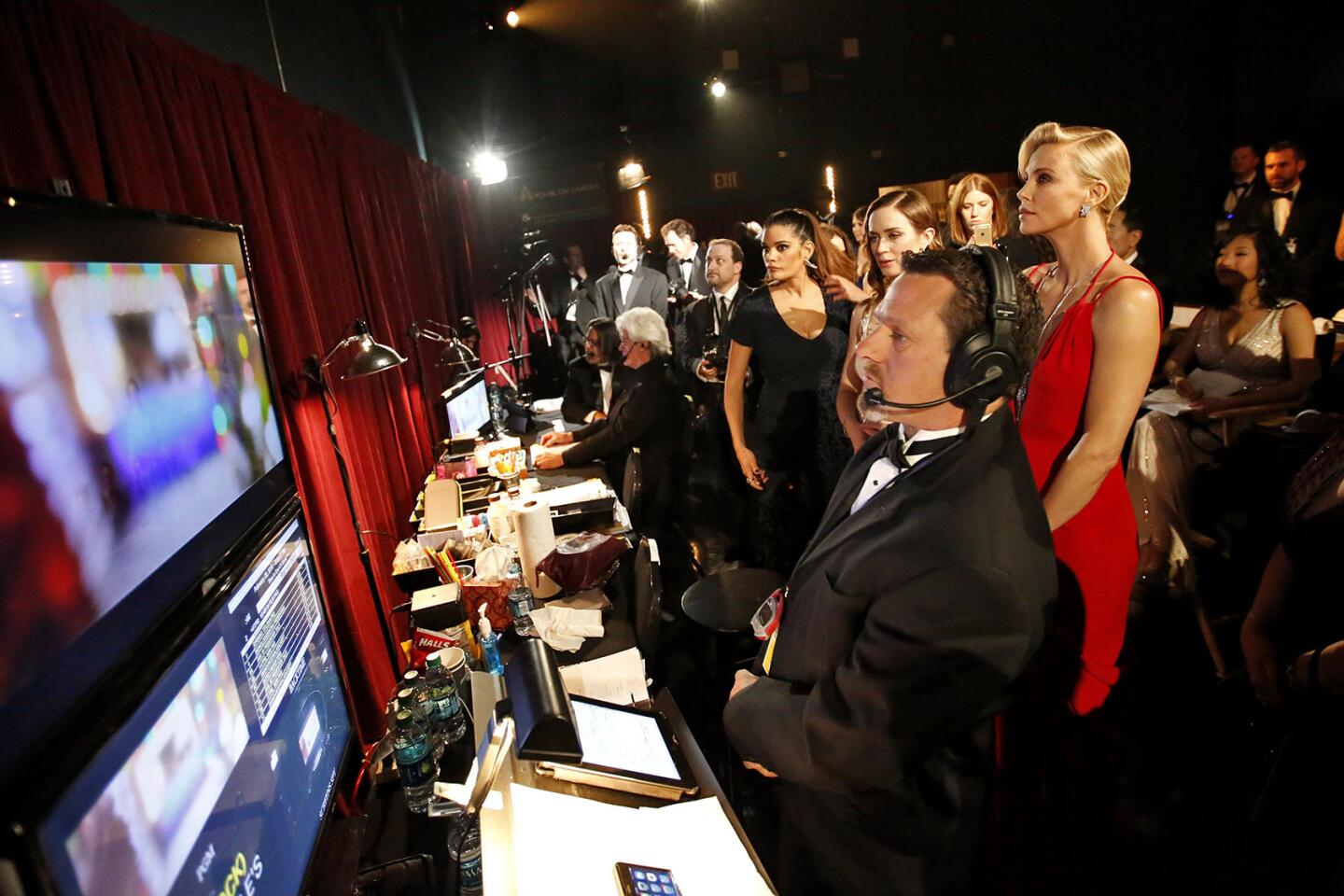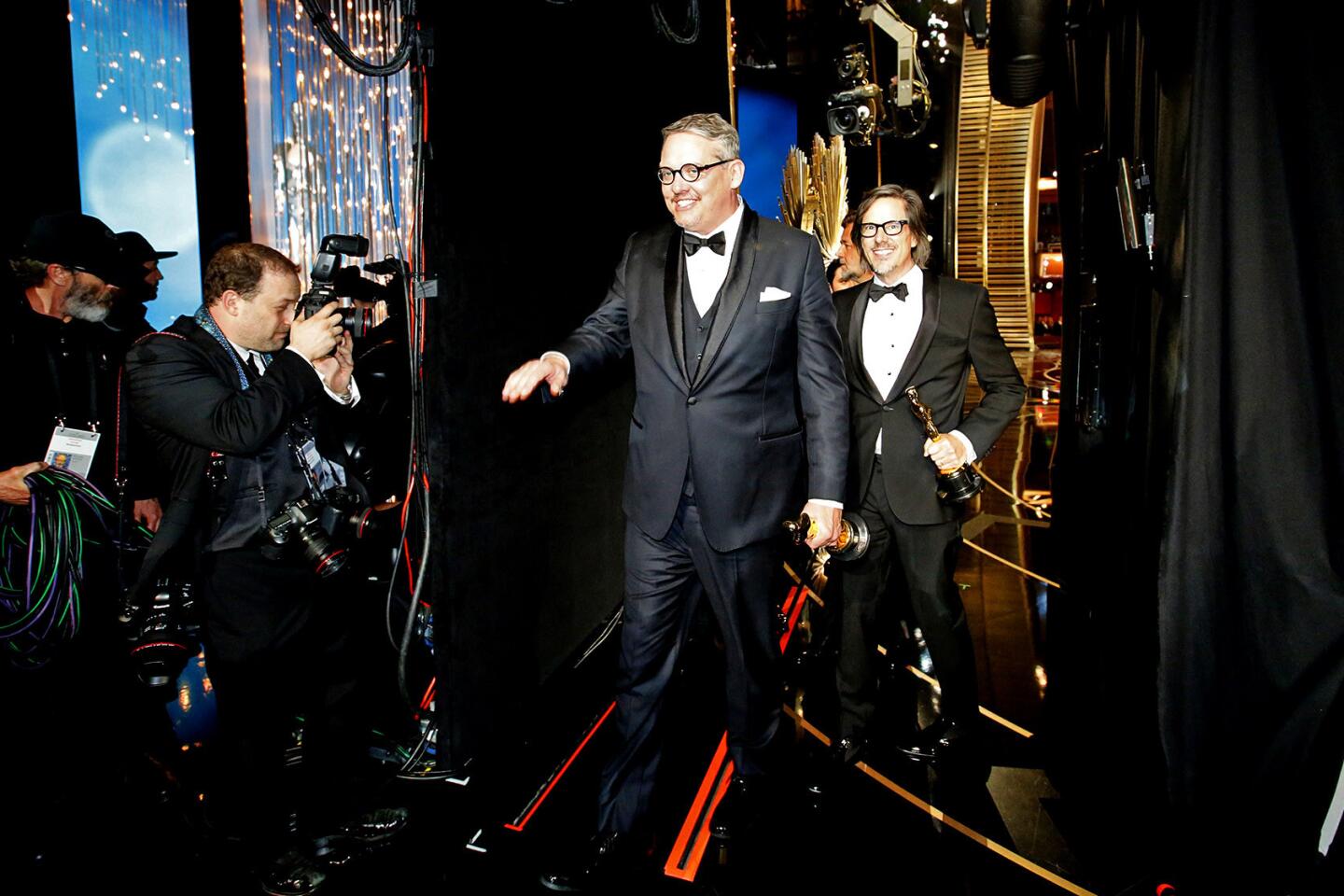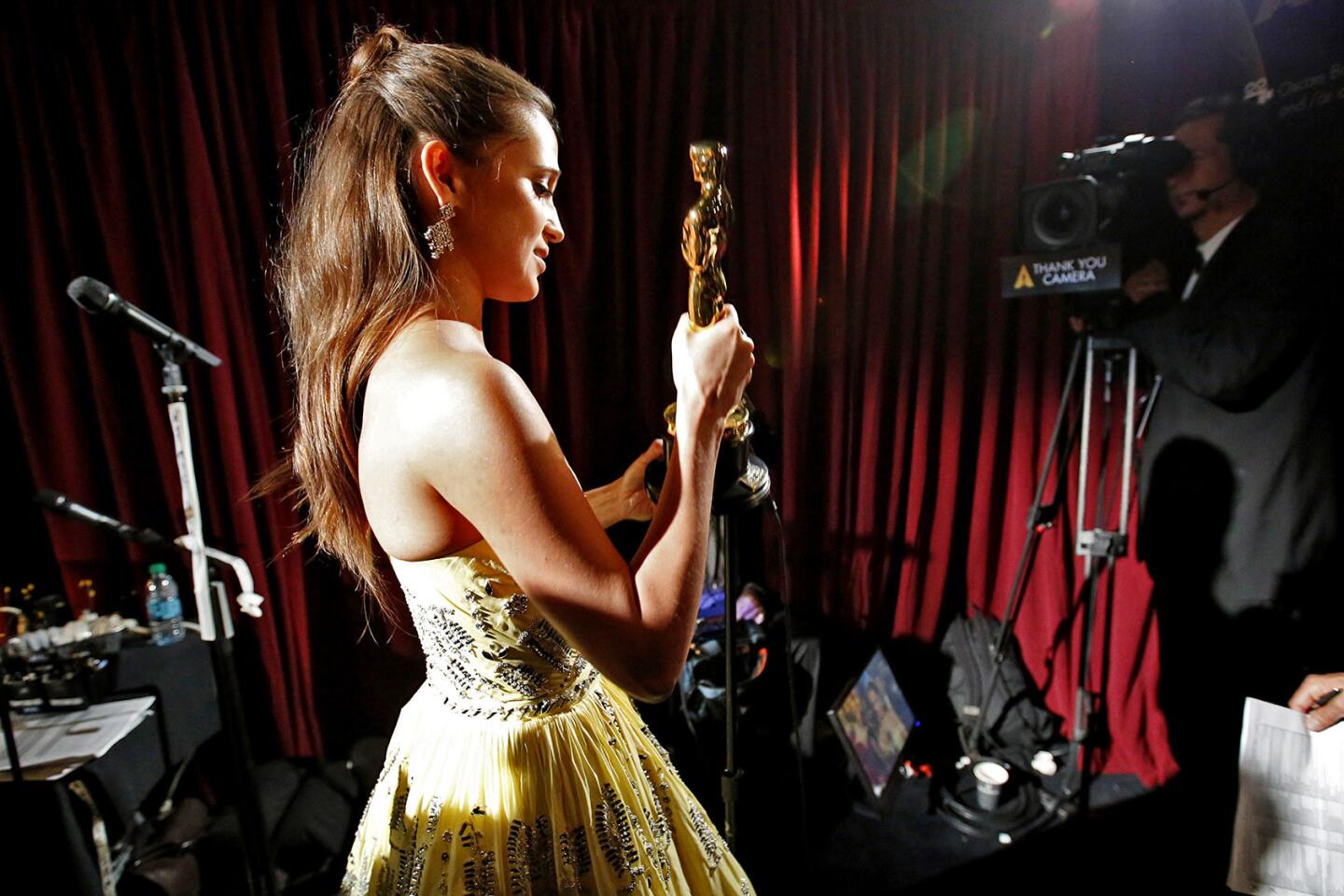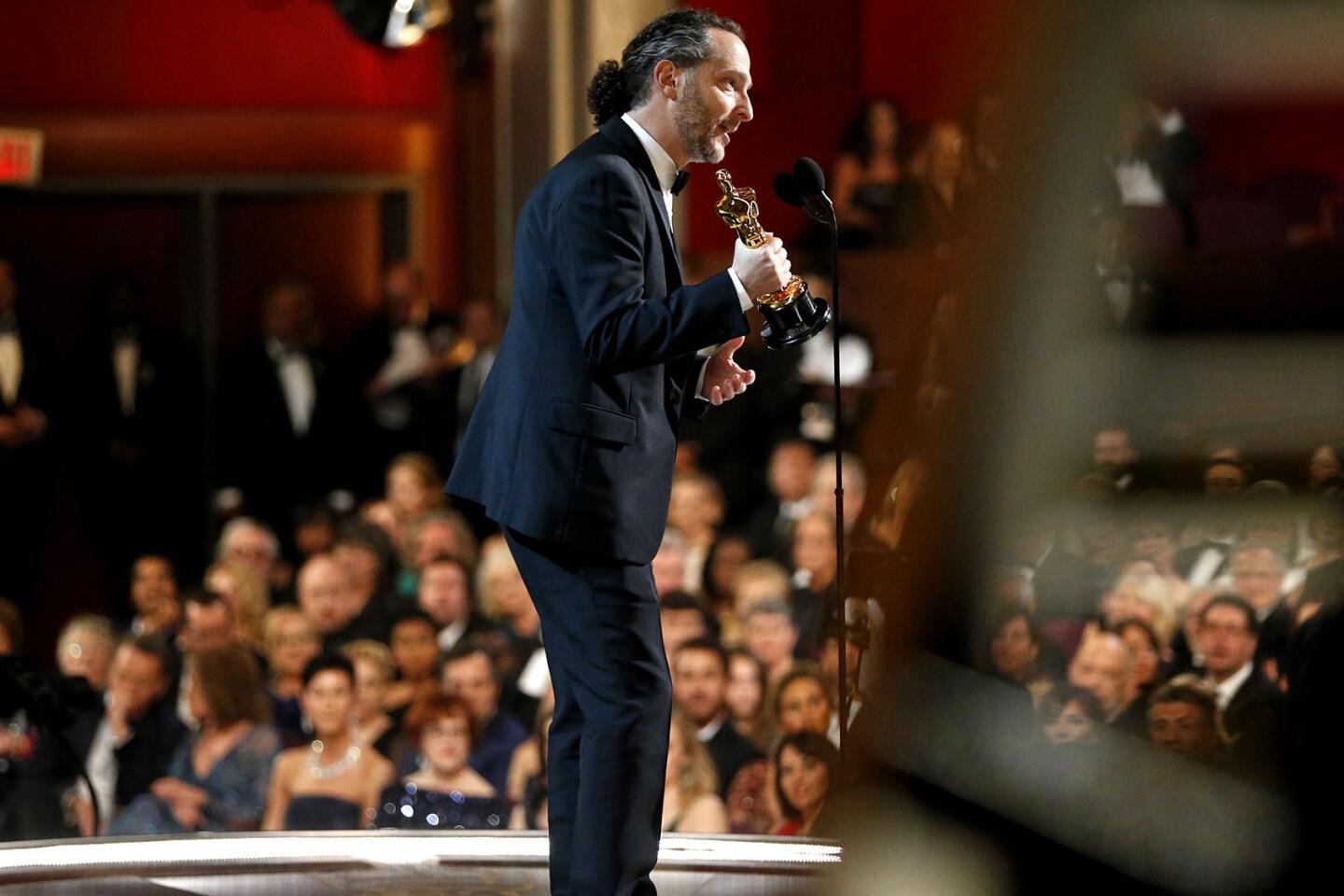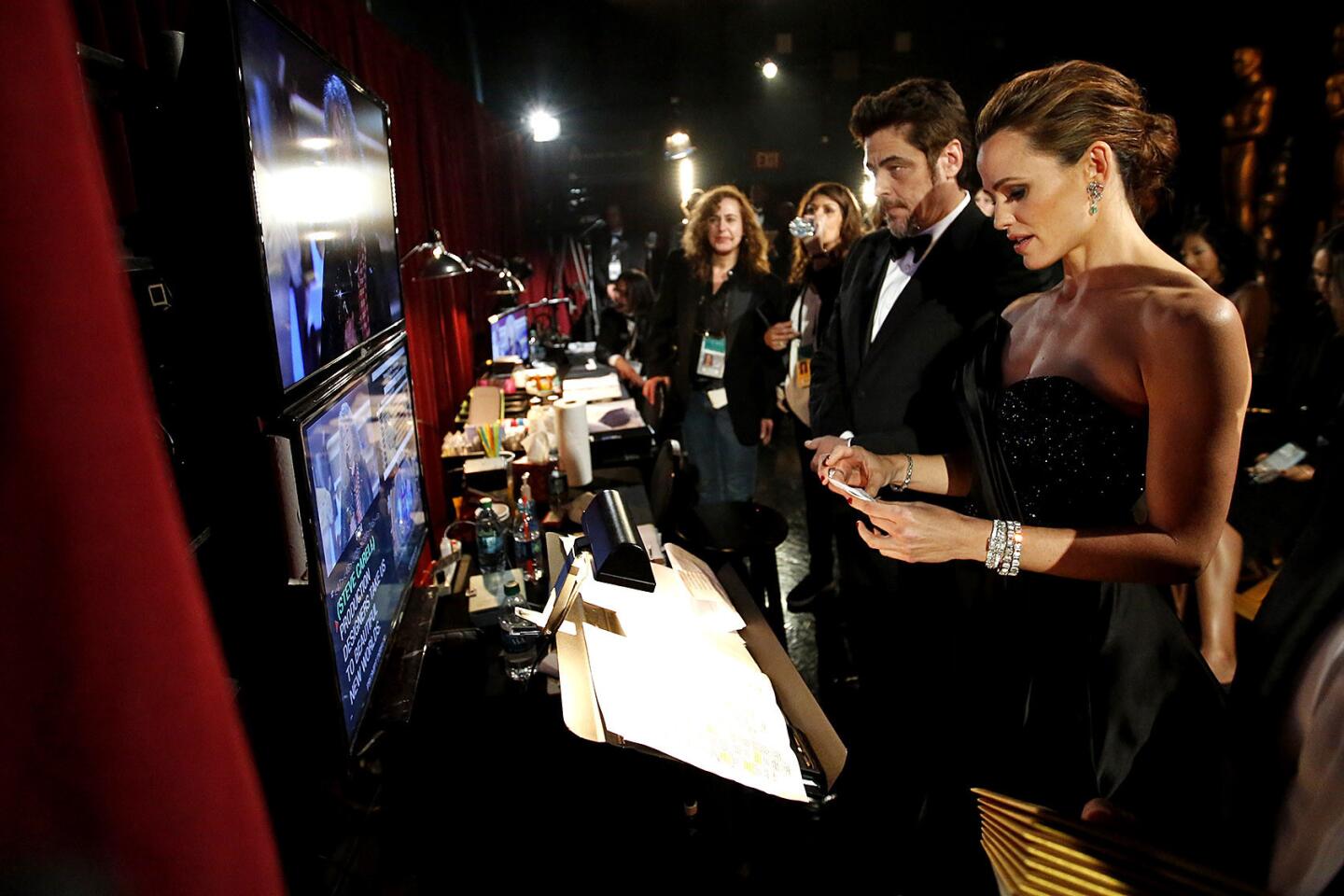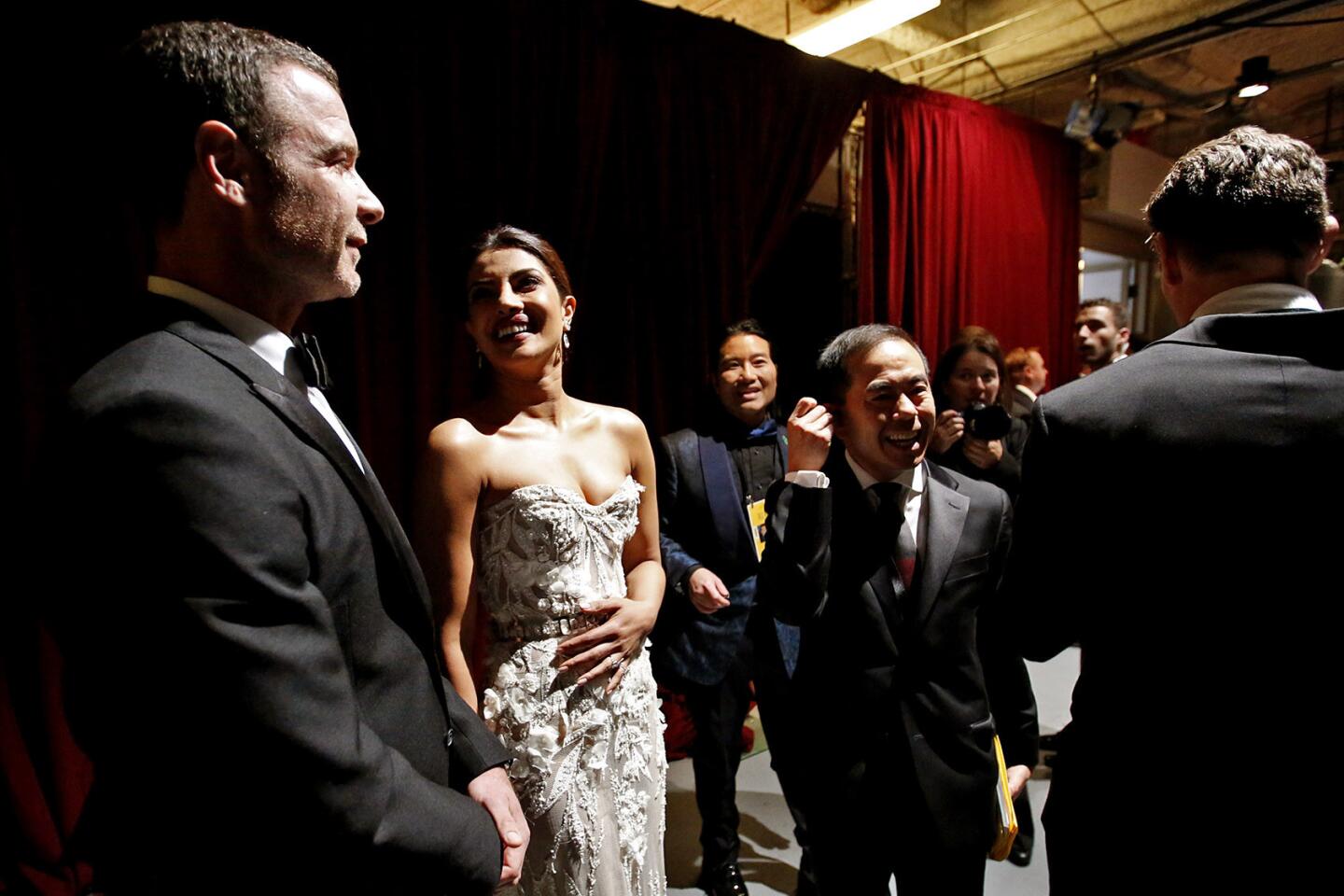Gold Standard: Timely headlines and the Oscar voting system power ‘Spotlight’ to best picture victory

The cast of best picture “Spotlight” set up a selfie backstage at the 88th Academy Awards.
- Share via
“Spotlight” won the best picture Oscar on Sunday, rewarded for its overall craft and quality, yes, but also for the way it became part of the conversation (and prodded the discussion) about the ongoing investigation into the Catholic clergy’s sexual abuse of children and how the church had suppressed the scandal.
One week before Oscar voting began this year, Times correspondent Tom Kington broke the news that “Spotlight” had been screened for a Vatican commission on clerical sex abuse.
“The film is extremely worrying about the cover-up of abuse in the Catholic Church, and I think it would be a good moment for the pope to see it,” said Peter Saunders, a member of the commission.
OSCARS 2016: Full coverage | Complete list of winners | Oscars quiz | Red carpet fashion
We don’t know if Pope Francis ever watched “Spotlight,” the journalism drama about a team of Boston Globe reporters investigating those abuses. But we do know that film academy members saw the Vatican-linked coverage, putting the movie squarely in their minds shortly before voting was to begin.
The movie’s scrappy awards campaign team, led by Open Road Films’ publicity vice president, Liz Biber, and veteran consultant Lisa Taback, focused on the film’s relevancy and importance, running for-your-consideration ads with such taglines as “one film moves us with the truth” and “one film breaks the silence.” Then too there was this kicker: “Where there is courage, there is change.”
Coming into the ceremony, “Spotlight,” “The Revenant” and “The Big Short” were seen as the three leading contenders for the top prize, with most pundits giving it to “The Revenant” because of its recent wins with the Directors Guild and the British film academy.
Springboarding on those timely headlines, “Spotlight” was likely pushed above the others by the academy’s preferential voting system, which asks those casting ballots to rank the movies in order. (In the other 23 Oscar categories, voters simply check off one name.)
The preferential system rewards consensus choices, movies that show up consistently in voters’ first-, second- or even third-place spots. “Spotlight” and “The Big Short” were those kinds of movies. “The Revenant,” not so much. Many people loved it; nearly as many found its brutal violence off-putting. And unlike “Spotlight,” it’s not a movie that plays well when watched on a DVD screener, which is how most academy members view the contenders.
So while Alejandro G. Inarritu could win the Oscar for directing “The Revenant,” his movie came up short. Inarritu simply needed to have the most votes to take the director category. And, for all we know, “The Revenant” may have tallied the most first-place votes on the first tabulation go-around, when PricewaterhouseCoopers accountants initially sort the ballots based on academy members’ No. 1 choice.
But to win on the first ballot, a movie would need at least 50% plus one of the vote. And in a competitive year like this one, that scenario wasn’t likely to happen.
So when the accountants began redistributing the ballots, eliminating, one by one, the movies with the fewest No. 1 votes and moving those ballots to the voters’ second (and, if necessary, third or fourth) choices, the “Spotlight” stack continued to grow.
“Spotlight” was a movie that some people loved and a lot of people liked. Very few found it completely lacking.
I saw this process happen first-hand as a voting member of the Los Angeles Film Critics Assn. When we met in December to decide our winners, “Mad Max: Fury Road” and “Carol” placed first and second throughout the day in category after category.
But when it came time to vote for best picture, “Spotlight” carried the day -- to the surprise of many in the room. It ended up being the movie that most members could live with winning.
Nearly three months later, Oscar voters arrived at the same place, giving Open Road a best picture prize less than five years after its founding. Someone sent five dozen Boston cream pies to the company’s Wilshire Boulevard office Monday morning to celebrate. They needn’t have bothered. This victory already tasted plenty sweet.
MORE:
To win an Oscar, it helps to have a meaningful story
Chris Rock’s walk-on song, Stacey Dash’s awkward wave: Here are the night’s more memorable moments
Chris Rock’s hot mess of an Oscars show: powerful, confounding, possibly revolutionary
More to Read
From the Oscars to the Emmys.
Get the Envelope newsletter for exclusive awards season coverage, behind-the-scenes stories from the Envelope podcast and columnist Glenn Whipp’s must-read analysis.
You may occasionally receive promotional content from the Los Angeles Times.

